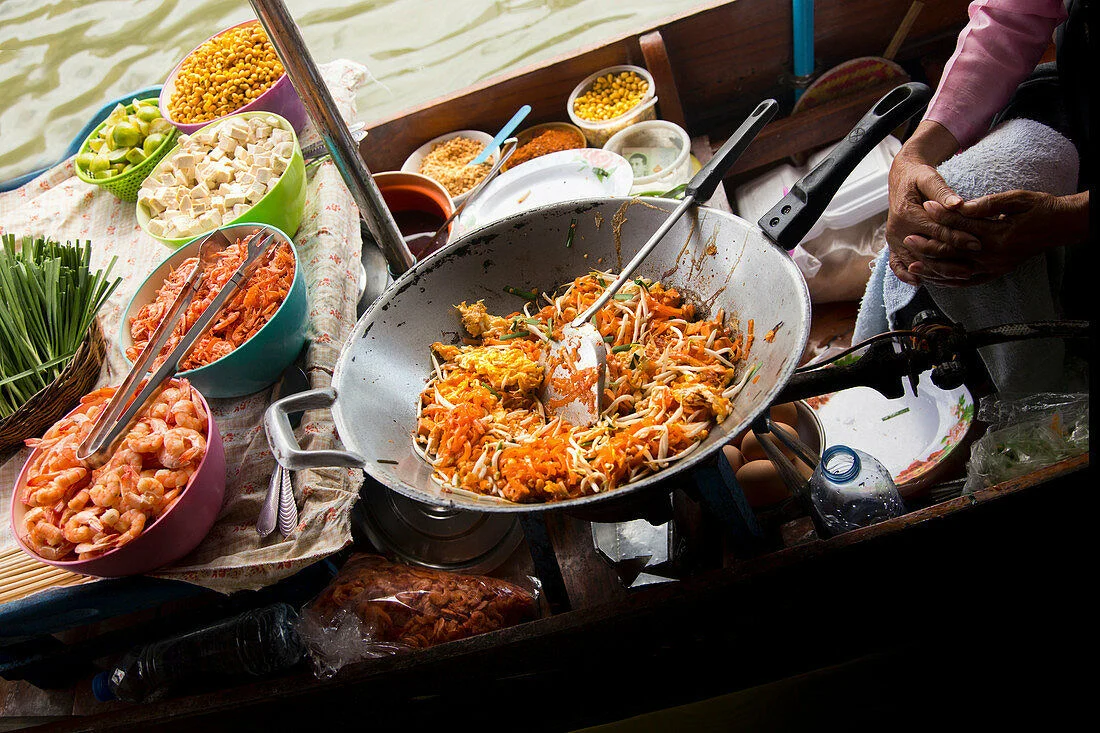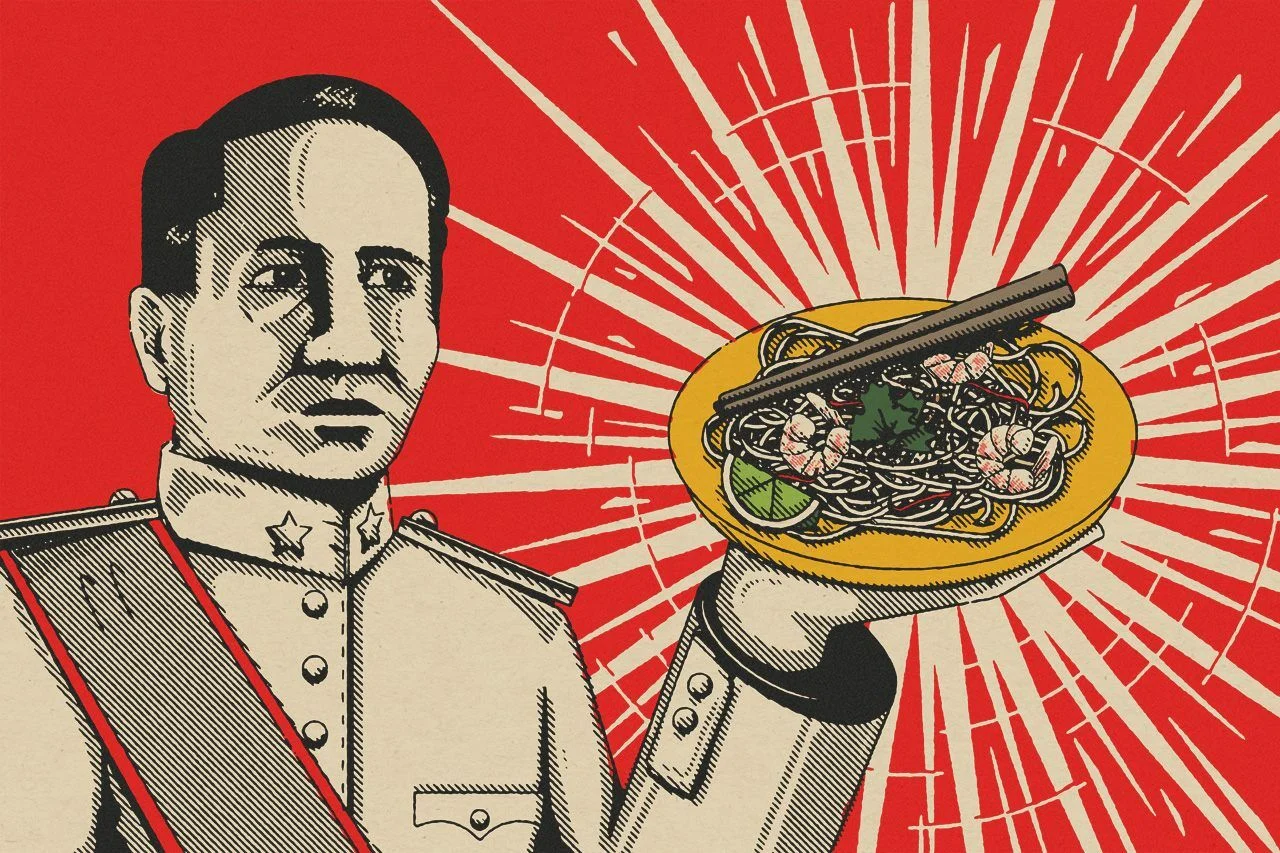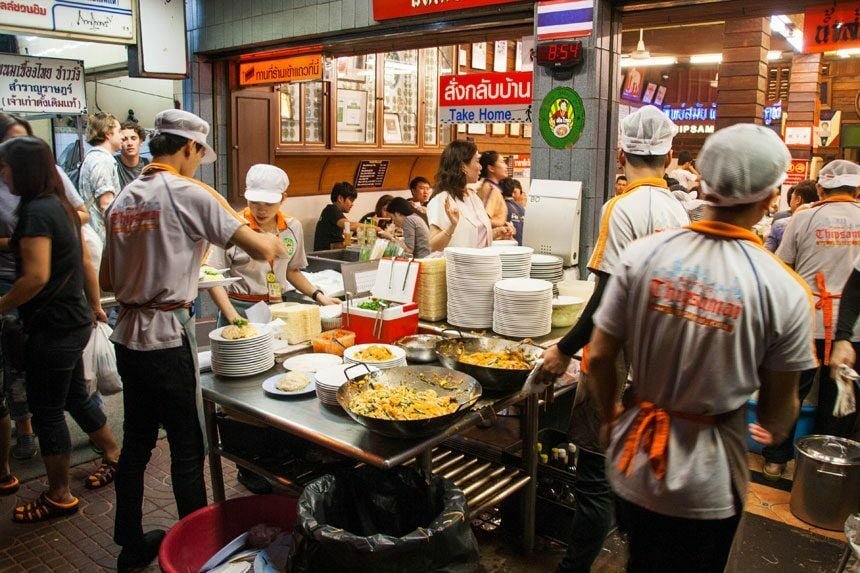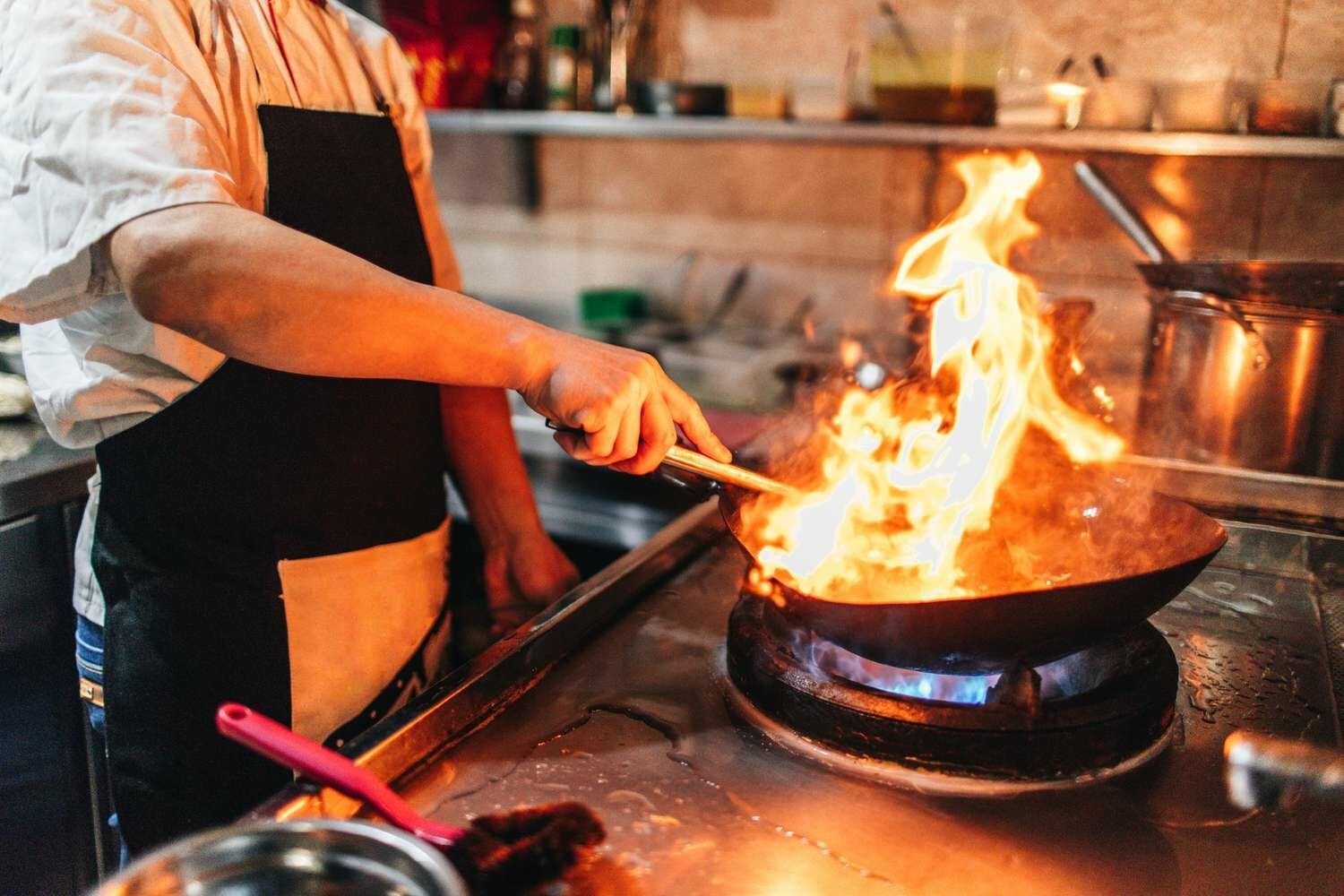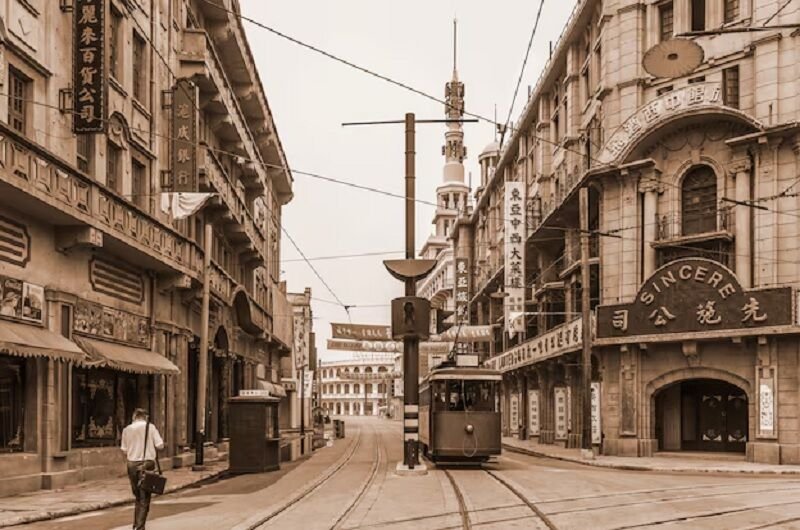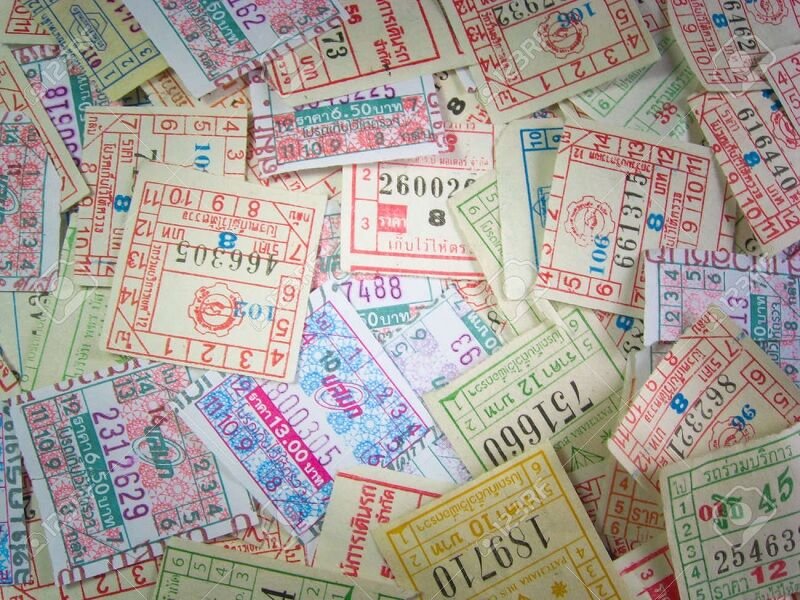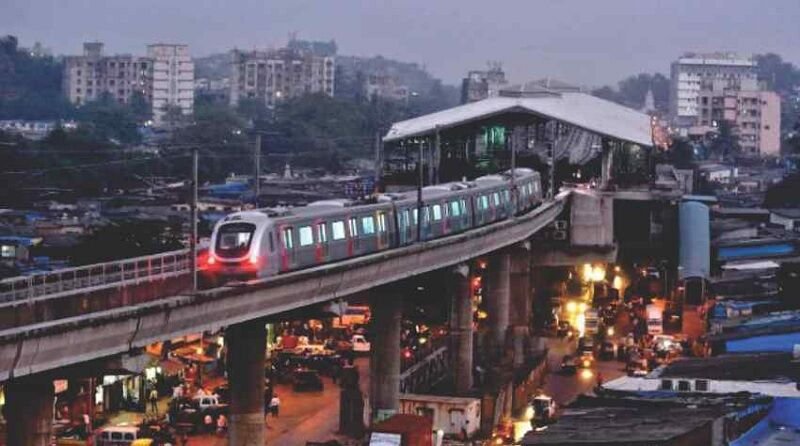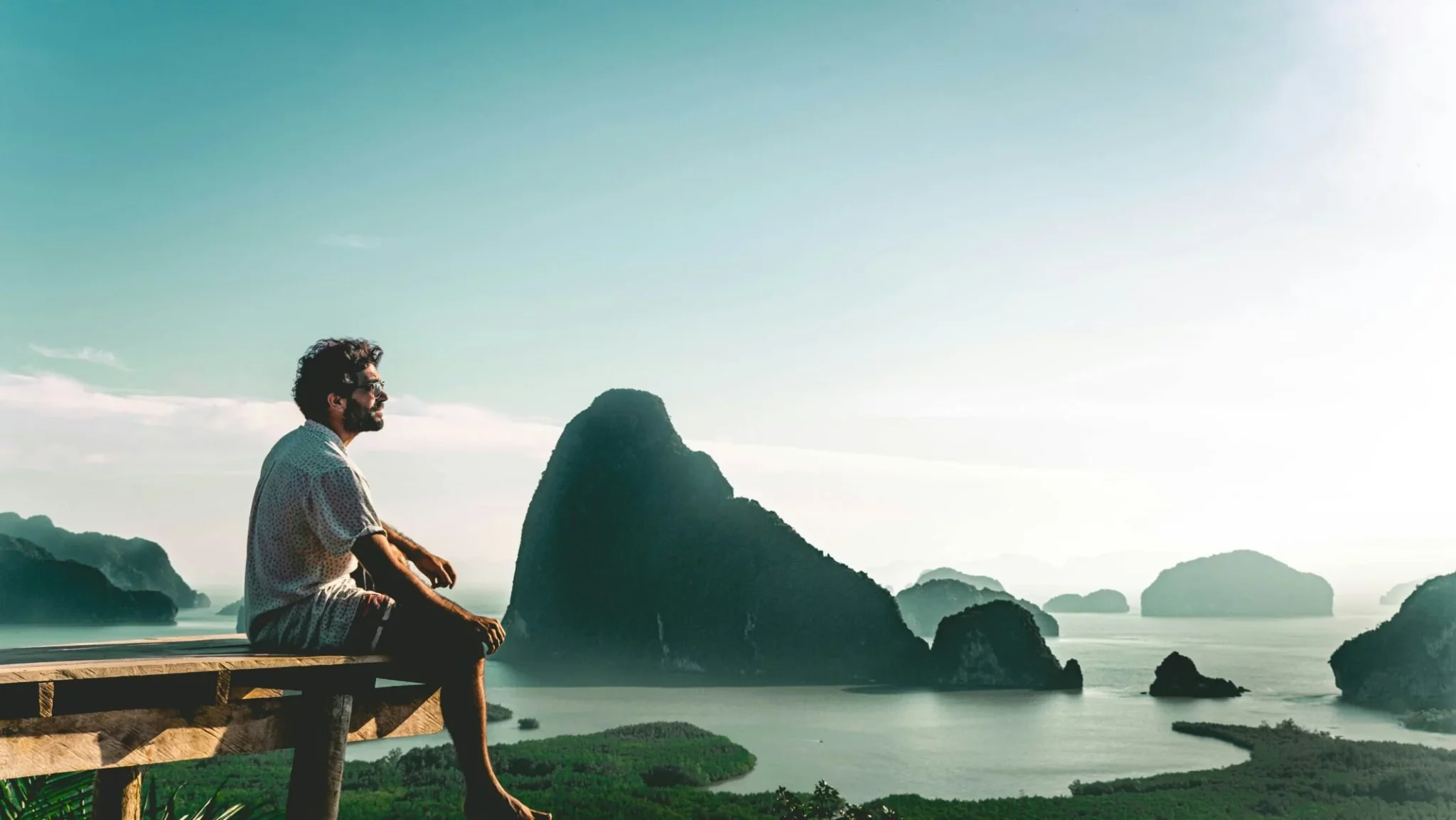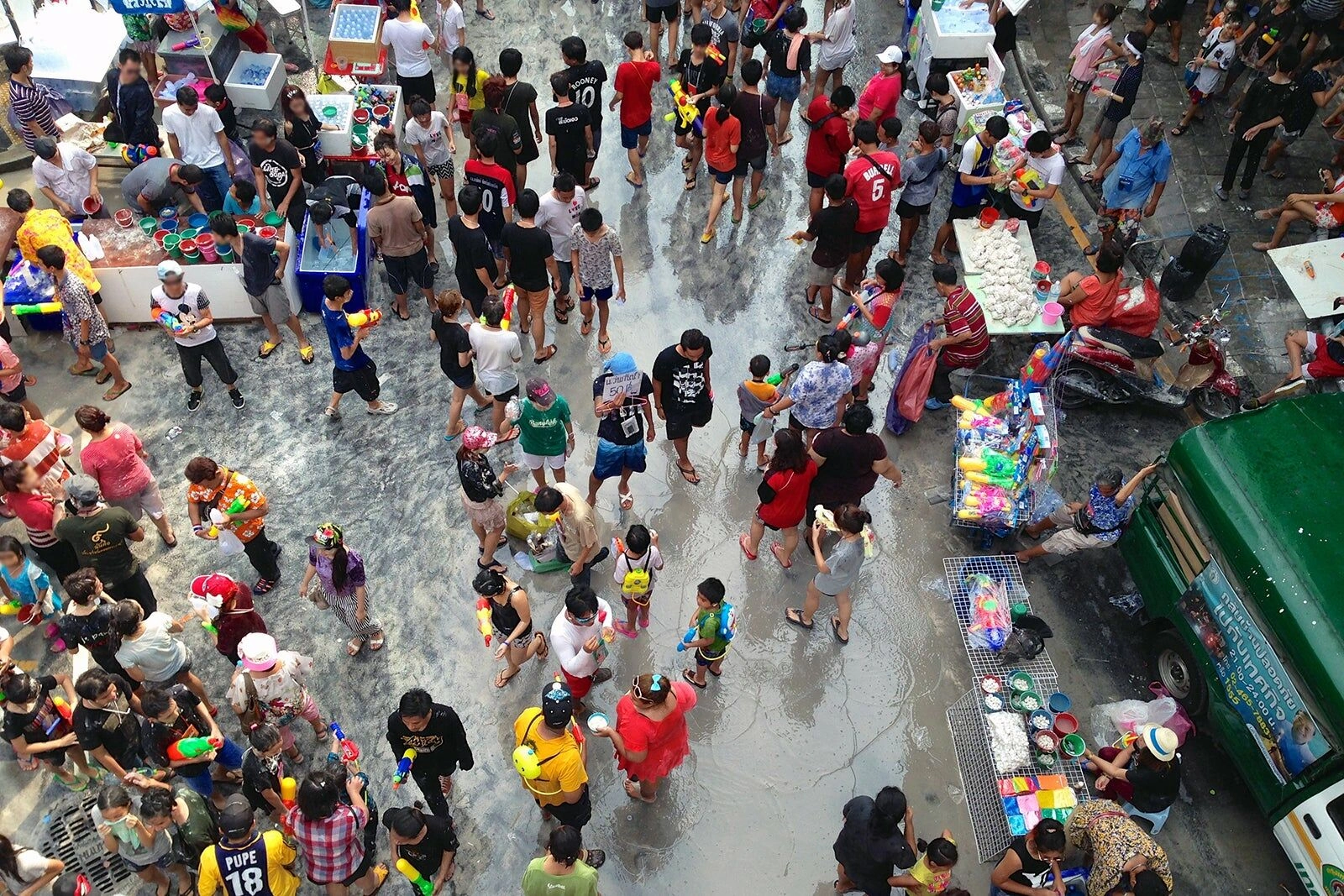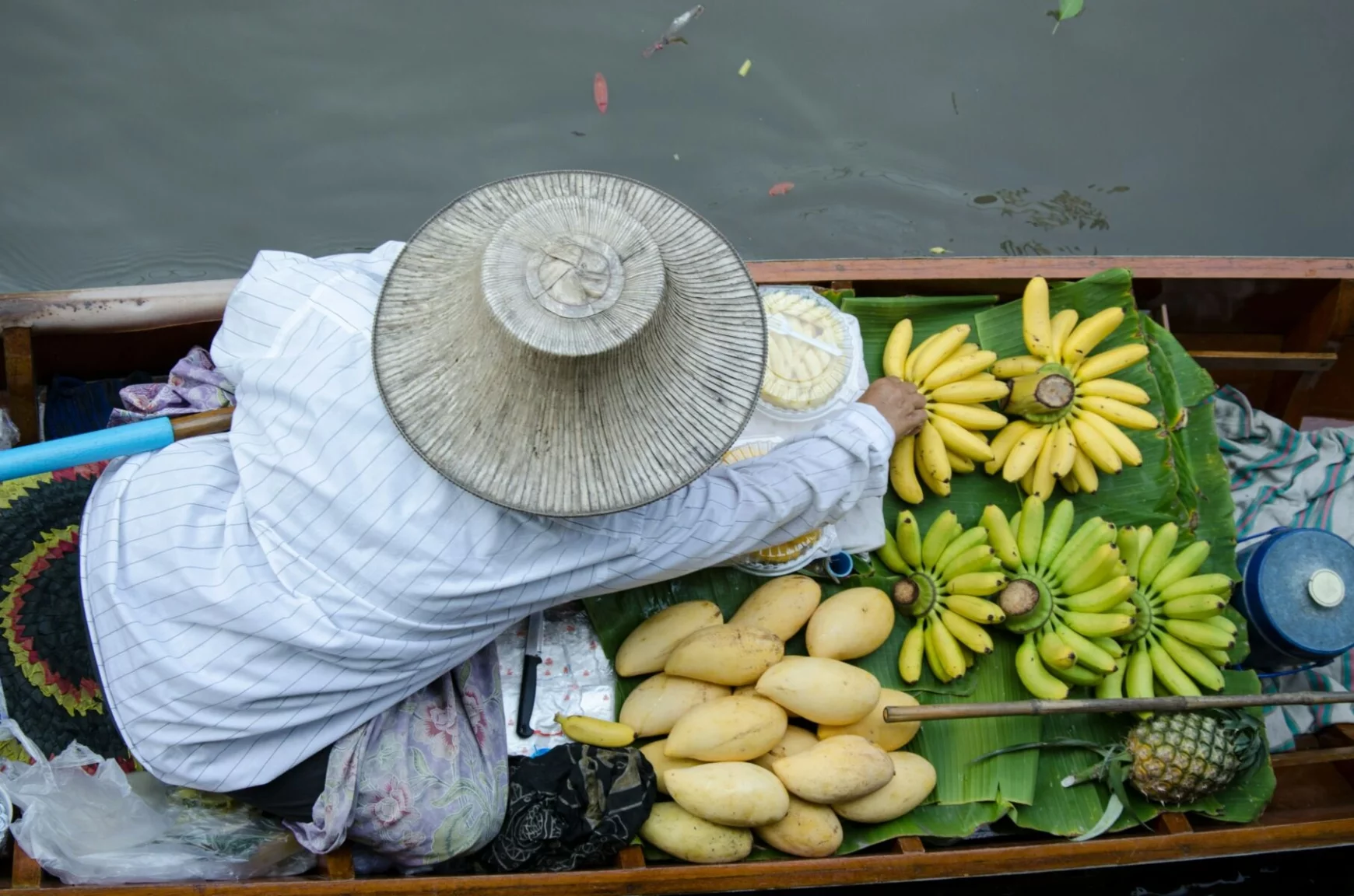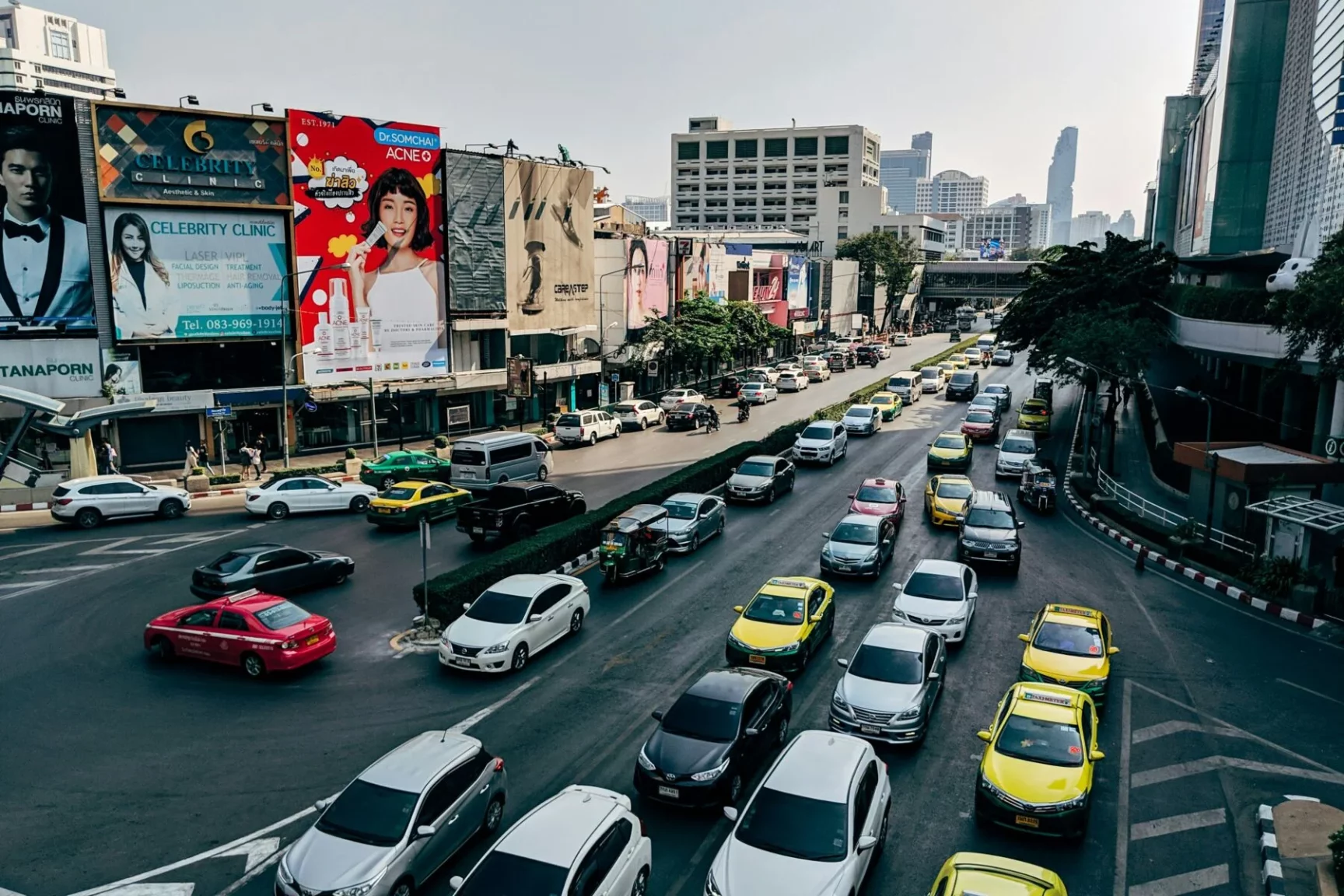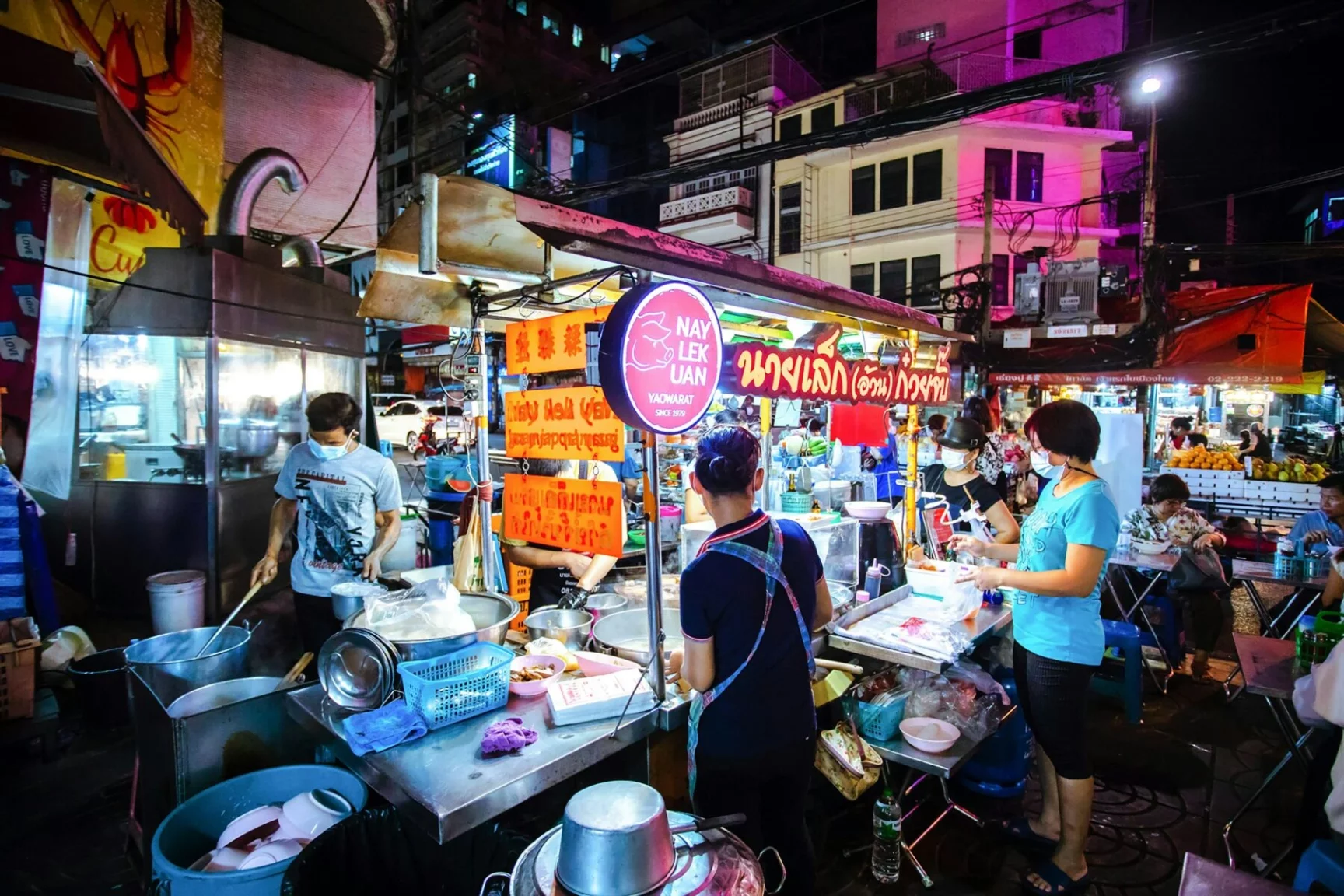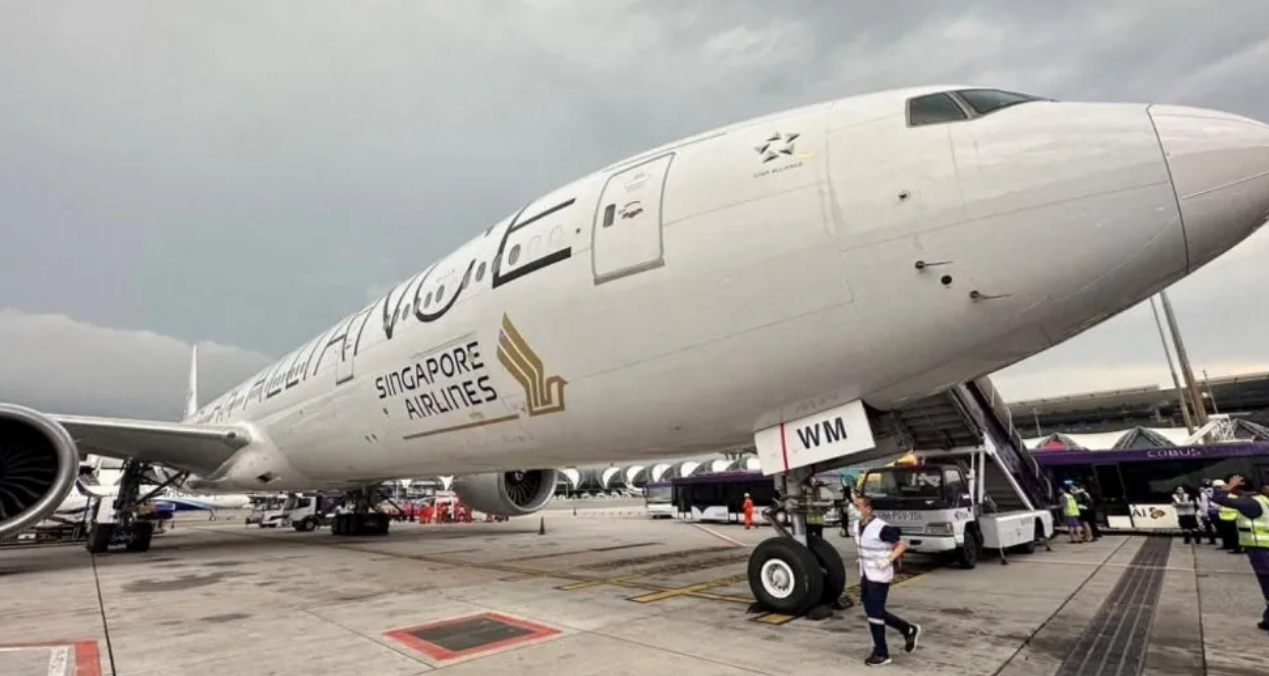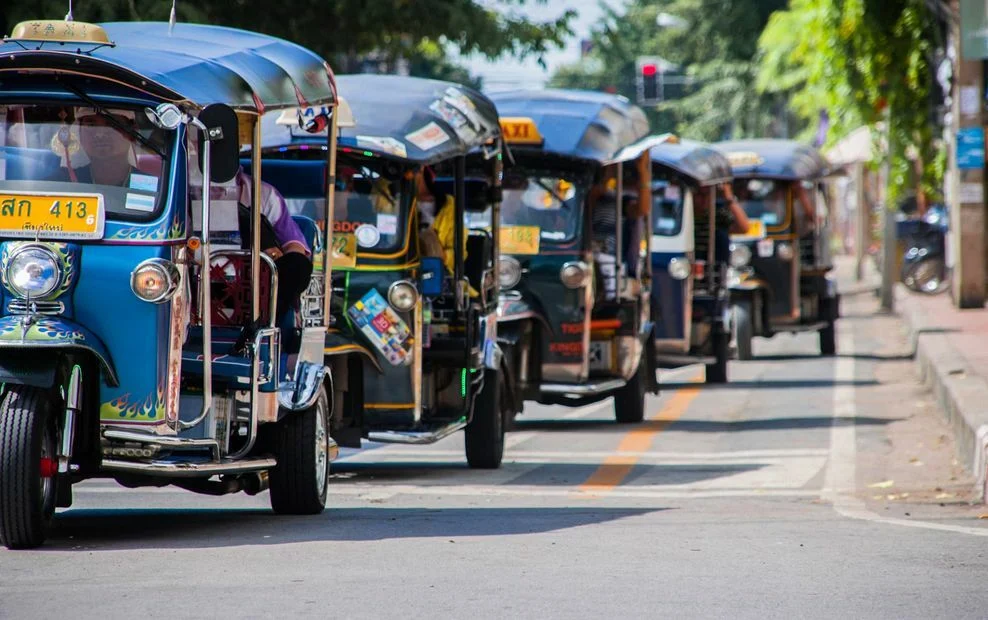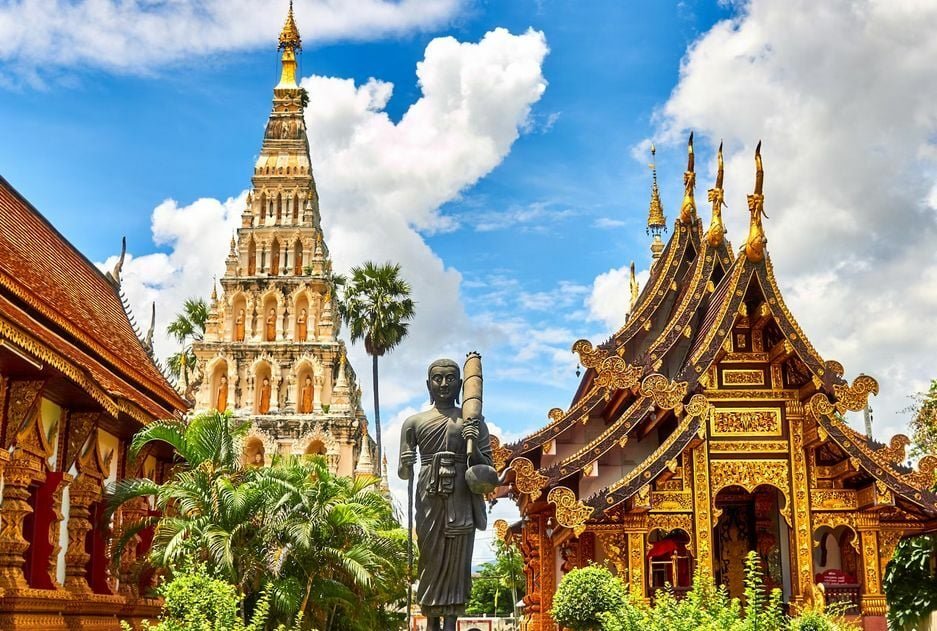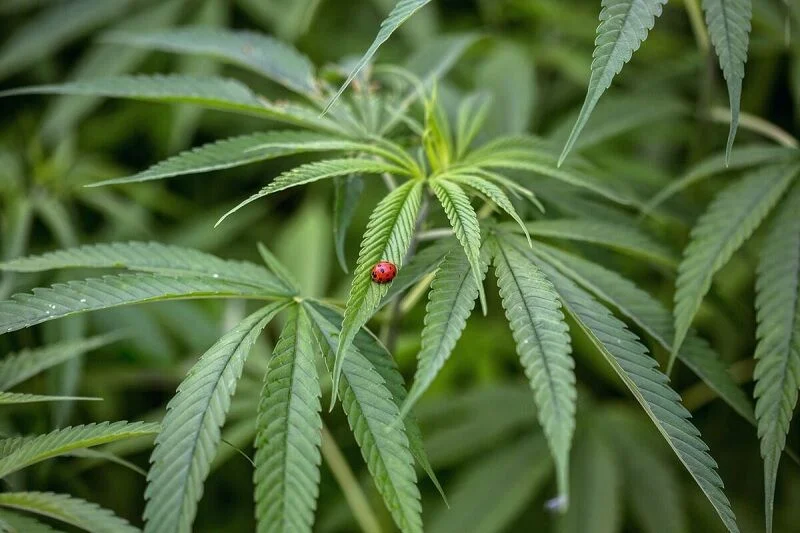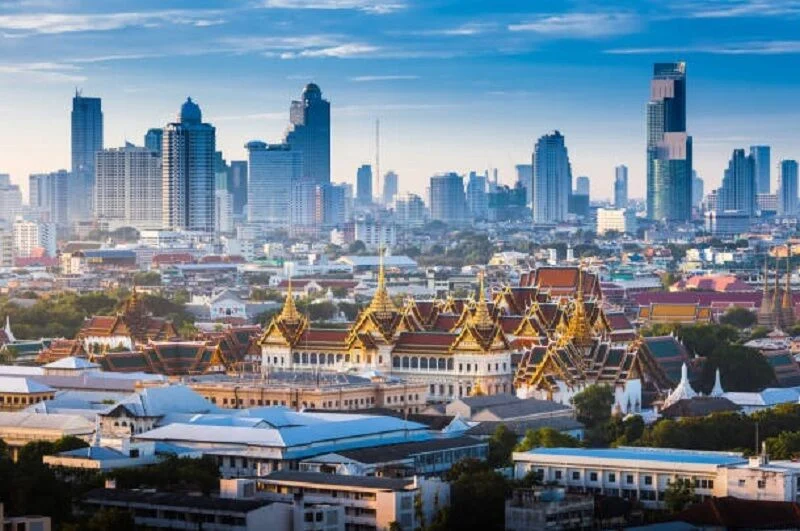-
Posts
37,054 -
Joined
-
Last visited
-
Days Won
5
Content Type
Events
Forums
Downloads
Quizzes
Gallery
Blogs
Everything posted by CharlieH
-
Reported disruptive off topic content has been removed along with replies to it. PLEASE observe the topic title and post accordingly. Disruptive off topic diversions will be removed.
-
Thailand’s national food, Pad Thai, is recognised around the world for its appeal to foodies everywhere. This delicious combination of sour, spicy, and sweet ingredients represents a major development in Thai politics and culture in addition to tasting amazing. It serves as a compelling example of the powerful role food can play in reflecting a nation’s history. Origins of Pad Thai Early influences from Chinese cuisine It is believed that a similar noodle dish was introduced to Thailand back in the 1700s by Chinese immigrants. They brought with them the techniques and ingredients that have influenced Thai cooking and the earlier versions of Pad Thai. Using their techniques, Thai people started incorporating local spices and flavours such as tamarind, fish sauce, and palm sugar then slowly added peanuts, garlic chives, and bean sprouts. This cross-cultural exchange has helped shape the dish we now love eating. Pad Thai during World War II Killing two birds with one stone Around the 1940s, Thailand was facing a rice shortage due to the floods caused by World War II. This scarcity has led the Prime Minister, Plaek Phibunsongkhram, to promote alternative food sources initiating the campaign, “Noodle is Your Lunch”, particularly rice noodles. Since rice noodles needed at least 50% rice, they doubled and became a staple, saving Thailand from losing rice. However, Prime Minister Phibun also saw this as an opportunity to foster a sense of nationalism and unity. Since the world was undergoing a war he did not want any country to colonize Thailand, therefore, he introduced street food carts “Gway Teow Pad Thai”. “Gway Teow” is a nod to the Chinese name for rice noodles, while “Pad” means fried and “Thai” signifies Thai-style preparation. The cultural impact of Pad Thai Symbol of Thai identity Pad Thai is a representation of the Thai culture that combines pride in one’s country with culinary skills. It was created out of need during hard times, but it has since evolved to become a symbol of Thai culture across the world. Thailand is characterised by a peaceful combination of cultural adaptation and distinctiveness, which is brilliantly exhibited in the dish’s ingredients and preparation, rooted in local culture yet inspired by Chinese skills. Street food icon Pad Thai has become a street food classic and can be found in almost all of Thailand’s busy marketplaces. It’s the preferred dish for residents and visitors due to its accessibility and cost, providing a tasteful, brief introduction to Thai cooking customs. Pad Thai sellers preserve the spirit of Thai street eating culture by serving the dish from dawn till sunset. Each cart puts a unique spin on the basic formula. Global popularity There is no denying Pad Thai’s global appeal. It is frequently used as a starter dish for people who are unfamiliar with Thai food; it has a delicate sophistication that appeals to foodies all over the world. Pad Thai is served in restaurants all over the world, and each one customises the meal to fit the local palate while maintaining its cultural origins, building a bridge across boundaries via food. Thailand’s rich history, cultural resilience, and worldwide impact are embodied in the dish Pad Thai, a popular cuisine that is enjoyed by people worldwide. Discover additional Thai dishes that can fill you up! Original article by Thaiger
-
Cheap in comparison to where?
-
Are you contemplating between exploring Chiang Mai or Chiang Rai? Both cities, strategically located in the core of northern Thailand, offer a diverse array of experiences, each possessing distinct charm. This article endeavors to elucidate the discrepancies between these two engaging locations, assisting you in making an educated decision for your forthcoming excursion. Chiang Mai, lauded as the provincial capital, is recognized for its dependable amenities and regular activities, thereby making it an optimal point for initiating exploration of northern Thailand. Contrarily, Chiang Rai – the capital city of its eponymous province – provides a voyage into uncharted territories teeming with prospects to stray from the conventional tourist path. Whether your plan entails a brief expedition or a prolonged sojourn, comprehending the unique allure of both Chiang Mai and Chiang Rai is instrumental in curating an unforgettable Thai journey. Please delve further as we untangle the distinctive offerings presented by these two jewels of the north. Chiang mai and chiang rai: unravelling the charm Cultural and historical highlights Immerse yourself in the deep roots of Thai history and culture in the two cities – Chiang Mai and Chiang Rai. While Chiang Mai’s Old City, a perfect square enclosed by a medieval moat, is filed with time-worn temples, Chiang Rai’s allure tends to be more refined with an array of exquisite temples and unique Thai artists displaying their talents. Noteworthy is Chiang Mai’s Saturday market, a favoured choice among locals and tucked away in Wua Lai Road, just a stone’s throw from the Old City. Sunday sees the market move to the bustling vicinity of Tapae Gate, the entrance to the Old City, making it highly visited and inevitably crowded. On the other hand, Chiang Rai, as the northernmost city, offers some cultural quirks giving it a unique charm that’s hard to find in other parts of Thailand. An exploration of Northern Thailand’s majestic landscapes Greetings to all nature enthusiasts. It is with certainty that I can attest, Northern Thailand, particularly Chiang Mai and Chiang Rai provinces, will exceed your expectations. These stunning locations offer an abundance of verdant landscapes and serene vistas that are perfect for those who find comfort in the arms of nature. Consider embarking on a day excursion from Chiang Mai to the lively Doi Inthanon National Park or visit the tranquil Chiang Mai Canyon. These experiences promise to leave long-lasting impressions. On another note, while Chiang Mai often takes center stage in discussions about Northern Thailand, it is vital not to overlook its less frequented but equally captivating counterpart -Chiang Rai. Situated at the convergence point of Burma and Laos, this city has its own distinctive charm resulting from its proximity to these regions. Here’s an invaluable tip for traversing between these two cities: explore local transportation options. The renowned Green Bus service operates exclusively between them and is worth considering for your journey. Alternatively, there are flights available between these two destinations or if you seek more adventure, consider a VIP bus ride for an exceptionally comfortable experience! Regardless of how you decide to navigate through these intriguing cities, remember that splendor awaits around every corner just for you! Deciding between Chiang Mai and Chiang Rai When exploring the depths of Northern Thailand, you’re presented with two monumental choices – Chiang Mai or Chiang Rai. Each city carries its own distinct appeal, and knowing the distinguishing features of each can enhance your travel plans. Primary distinctions to observe The differentiation between the two cities commences with an appreciation of their unique offerings. Enclosed within the renowned Old City of Chiang Mai, one encounters profound historical narratives. Visualise vibrant marketplaces, archaic temples, and a plethora of cafes that serve coffee derived from local sources. Conversely, Chiang Rai may appeal more strongly to those seeking adventure. Although it shares Chiang Mai’s cultural depth, it thrives due to its status as a path less travelled by many. Anticipate exposure to a diverse mix of cultures owing to its geographic proximity to Burma and Laos. An additional element for consideration is the variety of attractions each city provides. For example, travellers in search of adrenaline-inducing activities might find the adventure parks in Chiang Mai appealing; Elephant Nature Park serves as an excellent illustration. In contrast, if you are captivated by remarkable architectural designs, you must visit Chiang Rai’s intricately designed temples such as the Blue Temple and White Temple. Planning your Northern Thailand ltinerary With Northern Thailand’s picturesque beauty and enchanting cultural experiences to offer, planning your journey becomes crucial. Let’s dive deep into the best time to visit and the seamless transit options you hold when traversing between Chiang Mai and Chiang Rai. The best time to visit If you’re aiming for Chiang Mai, your ideal visiting period lies between October and April. During these dry seasons, temperatures average around 25-27 degrees, certifiably cooler than Bangkok. Avoid setting foot in Chiang Mai from July to early October as it’s the rainy season. However, rains may surprise you even during your month-long encounter with Chiang Mai. In contrast, Chiang Rai, resting further north, exhibits cooler temperatures fluctuating between 21 and 23 degrees. Notably, during the nights, Chiang Rai might offer a cooler sojourn than Chiang Mai due to its geographical position. Travelling between Chiang Mai and Chiang Rai Adventurers travelling from Chiang Mai to Chiang Rai can conveniently hop on a bus from the Arcade Bus Station. Choose the company that aligns well with you. Even with competitive prices, the cheapest bus tickets don’t bite off more than 140 baht, that’s less than US$5. An hourly departure of buses can be expected, with frequencies elevating based on the season. For travellers prioritising convenience, the Green Bus service, operating from Chiang Mai’s newly renovated Arcade Bus Station, is the go-to option. The shiny green ticket counter awaits you on your left as you walk through the core entrance. Divide your attentions to the right, towards a queue number machine. Following Chiang Mai’s Immigration system, grab your ticket when your number is called. Take note that your seat is designated during this phase. To prevent travel sickness instances, stay away from the last seats. No matter the destination of your choice, both Chiang Mai and Chiang Rai, offer splendid experiences. Chiang Mai is brimming with historical narratives, adventure parks, and regional exploration bases, whereas Chiang Rai invites you into its cultural depth, and meticulously fostered local temples. So, pack your bags and get ready for an unforgettable exploration of Thailand. conclusion The consideration at present: Chiang Mai or Chiang Rai? Each offers a distinct blend of attractions and experiences that promise to yield memorable moments. It must be emphasized, the undertaking involves more than simply touring renowned tourist locales. It incorporates a deep dive into the local culture, nocturnal markets, and regional festivities. Further, financial constraints should not induce excessive worry. There exist abundant avenues for economizing, from exploiting complimentary attractions such as Singha Park to opting for budget-friendly modes of transportation. Whether one is drawn towards the dynamic ambiance of Chiang Mai or the serene allure of Chiang Rai, an unparalleled experience in Northern Thailand is on offer. The choice ultimately lies with you; ensure it holds significance. Considering the above shared details you can also check out, How Thailand transformed its transportation Thailand’s journey with transportation, especially its railways, tells a fascinating tale of progress, pauses, and policy shifts. Since the Paknam Railway’s inception on 11 April 1893, the country has witnessed the evolution of its transport systems, albeit with a slow expansion post-1960s. Original article by The Thaiger
-
In the dynamic realm of global travel, Thailand presents a distinctive amalgamation of experiences. Encompassing lively street markets and tranquil temples, the nation’s intricate mosaic of life offers invaluable lessons to its visitors. However, these teachings extend beyond mere visual and auditory stimuli they encompass understanding the country’s unique financial dynamics as well. Should you be contemplating a journey to Thailand, it is imperative to comprehend its predominantly cash-based economy. Despite the international trend towards digital transactions, tangible currency reigns supreme in this Southeast Asian nation. Whether compensating for local transport services such as tuk-tuk rides or purchasing street cuisine, possessing an adequate amount of cash becomes an essential lesson swiftly grasped by travellers. Nevertheless, there is more to Thailand than its prevalent use of physical currency. The climate serves as an example of unpredictability that necessitates adaptability, strategic planning, and embracing unforeseen circumstances. In Thailand, each day can unfold as an astonishing expedition—instilling resilience and flexibility while teaching individuals the significance of appreciating the present moment. Embracing cultural diversity Immersing oneself in the diverse culture of Thailand offers abundant life lessons that can foster personal growth and contribute to a broader worldview. The most crucial element of this cultural diversity is the Thai concept of sanook. The Thai concept of sanook in everyday life In Thai vernacular, sanook refers to deriving fun from any task at hand. It’s an integral part of everyday life in Thailand. You might notice this idiosyncratic approach in a bustling street market’s vivacious aura, a serene monastery’s tranquil ambience, or the local’s realm of resilience and adaptability. The Songkran Festival; the embodiment of sanook | Photo via Hotels.com In a country where cash reigns supreme, sanook can be a practical tool for handling monetary challenges. You often see this in haggle-friendly marketplaces where a calm demeanour and jovial attitude help in successful negotiation, and useful insight for personal budget management. Even when it comes to dealing with Thailand’s unpredictable weather, sanook comes into play. Rain or shine, the local populace remains cheerful and flexible. It underscores the philosophy of embracing unpredictability and enjoying one’s circumstances. Whilst travelling in Thailand, being part of a tuk-tuk ride around Bangkok or getting lost amidst a tapestry of rundown buildings can seem stressful initially. Yet essential Thai life lessons lie in these experiences – ones that encourage facetiousness in the face of adversity, building a more robust, resilient character. Sanook encompasses not just the quest for happiness but also the art of deriving joy from ordinary, even challenging, life situations. So, whilst you traverse Thailand, embrace this cultural concept, making your journey more than a touristic escapade learn from it, and grow with it. The value of simplicity Visiting Thailand doesn’t just offer an eye-opening cultural experience, but also imparts essential life lessons. One such prominent theme is the undeniable value of simplicity. Finding joy in minimal living In the bustling markets and tranquil temples of Thailand, locals demonstrate how happiness doesn’t hinge on material wealth. Minimal living isn’t merely a trend here, it’s a deeply rooted lifestyle. Observe it closely and you’ll notice the sense of contentment that Thais derive from simple joys – the taste of local cuisine, the tranquillity of a quiet temple, the exhilaration of a tuk-tuk ride, or the charm of a bustling market. Photo by Stefano Alemani on Unsplash Understanding from their viewpoint, one will find oneself immersed in the local ambience shortly, maximizing every moment instead of being concerned about the size of one’s luggage or selecting garments to wear. As you engage with the patterns of the Thai lifestyle, minimalism achieves a fresh significance. It is not merely related to possessing fewer items it involves mitigating stress, cherishing the present moment and discovering satisfaction in simplicity. The importance of patience and flexibility Experiencing Thailand’s vibrant lifestyle and diverse culture, you’re bound to encounter unforeseen challenges. Understanding the importance of patience and flexibility, essential life lessons can be squeezed out of such experiences. Navigating unexpected challenges A vacation planned with precision might still present unexpected turns. You might find yourself on a rural road with a deflated tyre, unable to dial for assistance or see your meticulously planned walking tour detour into an odyssey of rundown buildings. While these instances might initially ignite frustration, they introduce you to the quintessential essence of patience and flexibility. Tour operators might include a detour around Bangkok instead of your desired destination, deceptive tuk-tuk drivers might embark you on an unplanned adventure, or persuasive tour guides might attempt to extort additional funds. Seemingly daunting, these occurrences ultimately enhance your understanding of the significance of staying flexible. From a scooter breakdown in the boonies to a scam encounter in busy metropolises, each unforeseen incident while travelling in Thailand can instill a vital learning Life doesn’t go exactly as planned. Instead of resisting, succumbing to these unanticipated predicaments with a flexible approach yields a richer travel experience. This adaptation skill then aids in smoothening not just your Thailand trip, but your life’s journey in general. Remember henceforth, traversing Thailand isn’t just about external exploration but introspection. It’s about absorbing life lessons, fostering patience, and embracing the power of flexibility. After all, these are learnings that you can carry far beyond your travel duration and apply in your everyday life. Personal growth through solo adventures Journeys single-handedly paint a brilliant portrait of personal growth and resilience on the canvas of life. Solo trips can seem intimidating initially, yet they can be trepidations fostering much-needed self-reliance and confidence. Lessons in self-reliance and confidence Solo travels demand ultimate self-reliance, a skill immensely tested during a journey through Thailand. Picture yourself borrowing a bike from a local hostel, and cycling your way through the maze of streets to an ancient temple. Finding directions becomes a task of its own, stepping out of your comfort zone to communicate with locals, perhaps even following a friendly motorcyclist who promises to guide you. Photo by Streets of Food on Unsplash Along the way, challenges emerge, from weaving daringly among vehicles, and maintaining your poise when your torch-lit path into the closed temple grounds turns into an unexpected chase by guard dogs. Now, imagine retreating, cycling over hedges, and even possibly, managing to fend off one with your trusty bike. Despite such threatening experiences, maintaining composure keeps you functional enough to seek help at a nearby restaurant, recharging both yourself and your essential digital companion – your phone. Such experiences deliver shock and adrenaline rush to escalate your self-reliance. Even within the confines of a foreign land, you realise you’re capable of handling unexpected obstacles. Every situation in Thailand requiring instantaneous decision-making contributes to boosting self-confidence significantly. When you thrive in such unpredictable situations, you gain the assurance to face whatever life throws at you, with increased resilience and confidence. Travelling in Thailand teaches you life lessons, excelling in self-reliance and confidence, among others, preparing you for not only extended travel experiences but also everyday encounters. Thus, every hair-raising adventure you conquer makes you more dexterous at independently navigating through life’s vicissitudes. Therefore, it is evident that the profound culture and diverse ecosystems of Thailand can impart significant life lessons. The adoption of the sanook philosophy, acclimatization to a cash-based economy, and embracing minimalistic living are among the ways one can foster personal growth. It has also been demonstrated how surmounting language barriers and establishing relationships with local inhabitants can augment your interpersonal skills. However, the benefits extend beyond this. Your odyssey in Thailand will also engender a deep reverence for nature and catalyse a shift towards sustainable living practices. It becomes unequivocally clear that travelling in Thailand transcends being merely a vacation; it is a transformative experience which endows you with an enhanced sense of accountability towards nature and motivates you towards sustainable living. Therefore, prepare yourself for an expedition that promises to significantly alter your outlook on life. Considering the above-shared details, you should learn basic Thai before moving to Thailand. Whether it’s for a job, romance, or you’ve just been dreaming of living in Thailand all your life, moving to a new country is always exciting and maybe a little bit scary. But before you pack your bags, let’s talk about why learning Thai should be on your checklist Original article
- 1 reply
-
- 3
-

-

-
OK, I think this merry-go-around can come to a stop. CLOSED
-
Seems to me many seem to argue for the sake of arguing. Anyone whose been here any length of time "Knows" that the one thing Thailand IS consistenti in is its inconsistency. We also know there are two rules often employed, one being the actual law/regulation, the other being whats applied on the day in that area. So, technically, yes its for a specific province (generally) but in reaity, it works everywhere, is certainly my experience using it everywhere I have ever travelled here.
-

Why you shouldnt carry cash in Thailand
CharlieH replied to CharlieH's topic in Thailand Travel Forum
Not if you followed the link contained which points to a specific area of Thailand, not Thailland in general. -
Facebook Twitter LinkedIn Messenger Share via Email Photo by s money offical website Greetings esteemed travellers. The allure of Thailand’s untouched beaches and vibrant culture is indeed compelling. This was evidenced by the impressive 28.09 million individuals who journeyed to this remarkable destination last year. However, before embarking on your voyage to this picturesque land, it is crucial to take into account certain financial considerations. Recent modifications in policies have dictated that a sufficient amount of cash must be on hand for foreign tourists, which may pose a potential inconvenience. Many may question the need for physical currency in an era dominated by mobile payments and digital transactions. Nonetheless, having tangible monetary resources can prove beneficial while partaking in market commerce within Thailand. However, do not let this deter you from actualizing your travel aspirations! There are efficient strategies available to circumnavigate these regulations without infringing upon any legal boundaries. We invite you to join us as we delve into the intricacies of managing cash flow within Thailand, ensuring nothing hinders your quintessential adventure. Why you should consider not carrying cash in Thailand Contents Why you should consider not carrying cash in Thailand Safety concerns Convenience factors Alternatives to carrying cash Mobile payment options Traveller’s cheques How to manage money safely in Thailand Using ATMs wisely Benefits of a cashless approach in Thailand Ease of transactions Security advantages While Thailand’s tourism popularity continues to escalate—with over 4.6 million Malaysian visitors last year—it’s crucial now, more than ever, to understand the unique travel requirements of the country. Weighing your options regarding carrying cash in Thailand can significantly streamline your visit. This comprehensive guide is designed to help you understand the potential rigours and rewards of carrying cash during your Thai vacation. Safety concerns While it’s practically impossible to eliminate the risk factor, carrying a lot of cash could heighten the possibility of becoming a theft target. A browser through Thailand’s social media pages exposes numerous cases of tourists victimised due to carrying large sums of money. Therefore, it’d be prudent to limit the amount of cash you carry. Use diverse methods of payment, for instance, mobile wallets, credit, or debit cards, such as TrueMoney Wallet. Highlighting its functionality, TrueMoney Wallet provides not only a digital form of your card but also features like topping up mobile credit, paying for purchases, and bill scanning. Convenience factors Photo by Iol Although cash is still widely used in Thailand, a growth in digital payment methods is evident. With the influx of tourists from tech-savvy nations, cashless payment systems are being readily adopted, offering various advantages. Firstly, the convenience of not having to worry about customs declarations associated with carrying cash sums above THB 15,000 alleviates the stress associated with travel preparation. Furthermore, avoiding unnecessary money exchanges helps keep your travel costs down, a significant factor given the exchange rates’ volatile nature. Subsequently, several hangouts, shops, and hospitality facilities in Thailand offer payment options like Mobile Pay or Credit Card; hence it’s becoming less necessary to carry excessive cash around. Remember, optimizing your payment mode helps you navigate your visit to Thailand smoothly. Ensure you’re informed and make smart decisions. Alternatives to carrying cash As Thailand modernises its financial systems, you might find carrying cash less necessary. Alternative means of payment offer convenience, and security, and can significantly reduce the cost of transaction fees. It’s worth considering the following cash alternatives to enhance your financial freedom during your Thai adventure. Mobile payment options Photo by Pixabay Fintech startups in Thailand are becoming a popular destination for cross-border remittances and local transactions. An apt example is the TrueMoney Wallet, a service launched by TrueMoney, which facilitates easy money transfers from Myanmar and Cambodia to Thailand. This is particularly useful for Thailand’s 3 million migrant workers – many of whom are unbanked – to conveniently transfer cash to their families, bypassing the need for a traditional banking transaction. With features such as bill payments, money sending and receiving, and online shopping, mobile wallets like TrueMoney can minimise the need to carry cash in Thailand. Opt for these mobile payment options, enabling you to cut out the traditional banking system entirely and transition seamlessly into a cash-free environment. Hey there, pal! Guess what? More and more people in Thailand are catching onto the credit and debit card trend. With ATMs sprouting like mushrooms everywhere, getting your hands on some cash has never been easier. But hold up a sec – you should know that some Thai ATMs might nick you an extra fee for transactions with international cards. So, keep this in mind when you’re sorting out your budget. It’s probably a smart move to keep your foreign bank card handy as a ‘just-in-case’ backup. And hey, while you’re at it, why not give your bank a shout to see if they tack on any additional fees when using your card in Thailand? Traveller’s cheques Traveller’s cheques form another cash alternative. Albeit less popular than they once were, these cheques still provide a reliable means of securing your money while abroad. If lost or stolen, they can be replaced by the issuing company. Remember, however, to declare any negotiable monetary instruments at customs if they exceed $20,000 or its equivalent in your home currency. Before embarking on your journey, equip yourself with an array of cash alternatives to best navigate Thailand’s evolving financial landscape, ensuring you fully enjoy your experience without the worry of losing cash. How to manage money safely in Thailand While roaming the scenic landscapes of Thailand, managing your money safely is a requisite task. Ascend your financial freedom beyond carrying cash, exploring secure and convenient alternatives. Let’s delve deeper into noteworthy considerations when using ATMs and when exchanging currency. Using ATMs wisely In Thailand, ATM usage, although convenient, imposes added costs. Designated as ATMs (automated telling machines), these cash points add a fee, mainly ranging from 220 Baht up to 250 Baht to the transaction, independent of your home bank’s fees. Therefore, foresee this expense whilst planning ATM transactions during your Thai escapade. Lesser ATM visits equate to lesser fees, allowing you to navigate Thailand’s terrains economically. However, if you’re in Chiang Mai, options such as the SuperRich money exchange, strategically situated opposite the UN Irish Pub and on Loi Kroh Road, notoriously offer generous cash exchange rates compared to banks. The SK Exchange, located near the Iron Bridge and Night Bazaar area, lends competitive rates as well. Therefore, calculate your requirements wisely, comparing the ATM transaction cost against such lucrative exchange rates. Benefits of a cashless approach in Thailand Thailand’s evolving financial ecosystem simplifies transactions while bolstering security for residents and travellers alike. Let’s delve into the specifics. Ease of transactions Securing your Thai adventure without the burden of too much cash involves opting for mobile payment methods or credit/debit cards. With digital payments seeing a surge in Thailand, your smartphone serves as your wallet, making it exceedingly simple to navigate Thai commerce. For example, RabbitLINE Pay facilitates purchases from game items to insurance – all in a few taps on your phone. Digitising transactions liberates you from counting coins and notes, equipping you with a fluent, efficient way to handle money in Thailand. Security advantages Photo by corporatefinanceinstitute offIcal website Accessing your funds digitally in Thailand also offers an added layer of security that carrying cash often lacks. When your spendings shift from physical to digital, incidents like theft or loss of money become a non-factor, as your funds remain secure in your bank or digital wallet. For instance, facilities in places like Donmuang Airport and places in Bangkok provide 24-hour service for secure digital transactions. Furthermore, if your phone or card gets lost or stolen, you can quickly immobilise your mobile wallet or card with a simple call to the service provider, safeguarding your monetary assets irrespective of your location within Thailand. That’s something carrying cash can’t guarantee. With the convenience and security advantages on offer, opting for a cashless approach in Thailand blends technological advancement with everyday living, enhancing your Thai experience. As you prepare to embark on your journey to Thailand, it is essential not to overlook the inclusion of a digital wallet. The transformation within Thailand’s financial landscape has highlighted the shift towards a cashless society. Utilising digital payments provides an increased level of convenience and security, negating the necessity for carrying substantial amounts of physical cash. Opt for services such as RabbitLINE Pay for your transactions which guarantees smoothness in operation and assures safety. Notably, establishments in prime locations such as Donmuang Airport and Bangkok are equipped with the necessary support systems to facilitate your transition into this cashless mode of transaction around the clock. Therefore, adapt to this innovation by transitioning towards cashless transactions during your stay in Thailand, ensuring an unforgettable experience while maintaining the utmost financial safety. Going cashless can help you during your stay in Thailand but it will not save you from spending it wrong. There are 10 signs you’re spending money wrong In a world where the allure of instant gratification often overshadows the virtue of financial prudence, it’s alarmingly easy to fall into the trap of mismanaging one’s finances. The subtle art of spending money wisely is lost on many, leading to a cycle of financial strain that seems inescapable. Recognising the signs of poor spending habits is the first step towards cultivating a healthier relationship with your finances. Original article Any other tips n tricks you know? please share them with the community below........
- 135 replies
-
- 28
-

-

-

-
Facebook Twitter LinkedIn Messenger Share via Emai Photo via Dall-E Choosing to retire in Thailand is an aspirational objective for numerous individuals, marked by a distinctive combination of cultures, serene landscapes, and a cost of living that guarantees a comfortable life. Nevertheless, deciding on the appropriate time to undertake this major life change requires thoughtful consideration. This arrangement necessitates a notable financial investment in a Thai banking institution and comprehensive health insurance coverage among other requirements. Given these conditions, meticulous planning becomes essential, with initiation of the application process within one’s home country recommended to mitigate time constraints and reduce potential stress. Furthermore, in the aftermath of the global pandemic, securing health insurance has transitioned from being merely advisable to compulsory for retirees seeking residence in Thailand. The variability in costs and extent of coverage underscores the need for extensive research and preparation. Those enticed by either leisurely pursuits or cultural exploration must weigh their options carefully, taking into consideration both financial stability and health security. Assessing the cost of living for retirement in Thailand Contents Assessing the cost of living for retirement in Thailand Housing and utility expenses Food and daily necessities Healthcare and insurance costs Thai retirement visa options The O-A and O-X long-stay visas The long-term resident visa Thailand elite visa Navigating visa requirements and extensions Preparing for the cultural shift Thai traditions and lifestyle Engaging with ex-pats and local communities Selecting a Thai retirement destination Comparing popular cities and regions Factors to consider: climate, amenities, and accessibility Managing your finances from abroad Banking and access to funds Impact on pensions and retirement Benefits Seeking financial advice for expatriates Healthcare considerations Evaluating healthcare services and facilities Insurance policies for expatriates When opting to retire in Thailand, it is imperative to comprehend the cost of living accurately. This segment delineates the principal expenses to facilitate the planning of your retirement budget efficiently. Housing and utility expenses Diving into the hunt for the perfect home is such an exciting adventure, especially when you’re dreaming of retiring in Thailand! Just a heads-up, the cost of housing can swing depending on your dream location, what kind of home makes your heart sing, and how much pizzazz you want. If you’ve got your sights set on vibrant places like Bangkok or the picturesque beaches of Phuket, snagging a cute one-bedroom apartment smack dab in the city might nudge your budget between THB 15,000-25,000 a month. But if being right in the hustle and bustle isn’t a top priority for you, you can find similar cosy spots a little further out that are kinder to your wallet at about THB 8,000-15,000 monthly. Food and daily necessities Let’s talk about the magic of street food or those bustling local markets in Thailand. Trust me, it’s not just about being kind to your wallet; it’s about embracing the local vibe and discovering some seriously tasty treats! With meals usually ringing in at around THB 40-70, it’s an affordable option that’s packed with excitement. If you’re the type who adores snuggling up in charming, quaint restaurants, just remember they might be a bit on the pricey side—imagine spending THB 200-400 for a meal. But hey, there’s also a unique joy in whipping up your delicious meals at home. Healthcare and insurance costs Healthcare in Thailand is characterized by its high quality and affordability, a pivotal consideration for numerous individuals opting to retire in Thailand. Although public healthcare services are accessible, the majority of expatriates opt for private healthcare due to its promptness and extensive services. The annual premiums for health insurance commence from THB 30,000, escalating considerably with age and the extent of coverage. It is imperative to obtain comprehensive health insurance that encompasses both general medical care and unforeseen emergencies. Thai retirement visa options Photo via Dall-E Choosing the perfect visa for your retirement in Thailand is super important and tailored to what you need. We’ve got a handy guide on the main visas for sticking around long-term, all to help make your move smooth and stress-free. The O-A and O-X long-stay visas Fellow retirees looking for a dreamy escape! Thailand’s got something special just for you – the O-A and O-X visas. Imagine living your best life in Thailand’s peaceful surroundings. If you’re leaning towards the O-A visa, it’s like Thailand saying, “Welcome for a year!” You’ll just need to show you’ve got enough dough saved up (at least THB 800,000 or about $23,000) or a steady income of at least THB 65,000 (roughly $1,900) each month. Plus, don’t forget to tick off that health insurance box with coverage that meets or beats what Thai rules say is enough. Feeling more adventurous? The O-X visa might be right up your alley! It rolls out the red carpet for an even longer stay – we’re talking 10 glorious years in beautiful Thailand, split into two chill 5-year periods. The long-term resident visa Oh, have you heard about the new Long Term Resident visa? It’s a fantastic chance for affluent retirees, investors, and anyone interested in spending some time in Thailand. This visa can stretch up to 10 years! It’s ideal for those who are looking to lend a hand in boosting Thailand’s economy or society. Thinking about investing in Thai real estate or local businesses? This could be your perfect chance. And if you’re a retiree dreaming of enjoying the beautiful life in stunning Thailand, this might just be what you’ve been searching for. Thailand elite visa For those seeking a blend of luxury and simplicity in retirement, the Thailand Elite Visa emerges as an attractive option. With validity options ranging from 5 to 20 years, it bypasses the financial scrutiny involved with other visas, instead requiring a one-time membership fee. The program provides a variety of additional perks, such as expedited immigration and passport control processes, government concierge services, and annual health check-ups, making it a seamless gateway to retiring in Thailand. Navigating visa requirements and extensions Getting your retirement visa for Thailand is all about understanding a few key rules and maybe a couple of extras along the way. Whether it’s showing you’ve got enough saved up or making sure you’re covered health-wise, each step is there to make sure your golden years in Thailand are as smooth and worry-free as possible. With things changing now and then, keeping up-to-date on these requirements means you can relax and enjoy everything retirement in Thailand has to offer. Preparing for the cultural shift Photo via Dall-E Thai traditions and lifestyle Retiring in Thailand kicks off an amazing new chapter, where getting cosy with local customs and the Thai lifestyle is a key part of this wonderful adventure. Thailand is famous for its rich cultural traditions, fun festivals, and incredible kindness. Engaging deeply with Thai traditions, including mastering the Wai greeting, comprehending temple manners, and valuing their focus on respect, will aid in a smooth assimilation into the local society. Engaging with ex-pats and local communities Establishing relationships is essential during the transition to residing in a new country. Thailand boasts a robust and hospitable expatriate community, in addition to its warm and amiable native population. Interaction with both constituencies will deepen your comprehension of Thai culture and furnish you with a supportive network. Platforms such as expatriate forums, social media groups, and local associations serve as excellent venues for connecting with individuals sharing common interests. Acquiring proficiency in the Thai language, albeit rudimentary, can markedly enhance your everyday engagements and is greatly valued by the local populace. Selecting a Thai retirement destination Photo via Dall-E Selecting the right Thai retirement destination is crucial once you’ve decided to retire in Thailand. Both your lifestyle preferences and practical considerations will guide this choice. This section explores the factors that matter the most when making this decision. Comparing popular cities and regions Upon retirement in Thailand, the nation presents an array of cities and regions designed to accommodate varying preferences and requirements. Bangkok, renowned for its dynamic urban environment, extensive shopping facilities, and varied gastronomic offerings, may attract individuals in search of a lively city experience. Conversely, Chiang Mai is celebrated for its profound cultural heritage, more temperate climate, and relaxed pace of life, appealing to retirees desiring peace within a culturally rich setting. Factors to consider: climate, amenities, and accessibility Finding your dream retirement spot in Thailand is like making a new friend – it’s all about feeling out the vibe! Up north, you’re greeted with cool, dry winters that are just so refreshing, while down south, it’s all about those warm tropical feels and rainy monsoon seasons. It truly boils down to what kind of weather brings a smile to your face because that’s going to play a big part in choosing your next favourite place to call home. Amenities are another crucial consideration. Healthcare facilities, entertainment options, and social clubs play a significant role in ensuring a comfortable retirement. Destinations like Bangkok and Chiang Mai score high in this regard with their international hospitals and active expat communities. Managing your finances from abroad Photo via Dall-E Opting to retire in Thailand necessitates not only an immersion into a novel culture but also rigorous financial planning. It is imperative to adeptly manage one’s finances from abroad to guarantee a seamless and enduring retirement phase in the Land of Smiles. In this discourse, we delineate critical financial considerations aimed at upholding fiscal steadiness whilst relishing one’s retirement years in Thailand. Banking and access to funds Getting a local bank account in Thailand can make your day-to-day money stuff easier and help you dodge those pesky fees that come with international banking. Loads of Thai banks have special services just for expats, like Internet banking, so you can keep an eye on your finances from anywhere in the world. When it comes to moving money between your home country and Thailand, you’ll want to take a good look at exchange rates and transaction fees – they matter! Using platforms like TransferWise or something similar could get you way better rates than what the old-school banks offer. Impact on pensions and retirement Benefits When you decide to retire in Thailand, understanding how your move affects your pension and retirement benefits is paramount. Some countries have agreements that allow you to transfer your pension abroad without significant penalties. However, the rules vary significantly between countries, so it’s critical to check with your pension provider or a financial advisor to understand the implications. Remember, currency fluctuations can dramatically affect your pension’s value; hence, planning for such eventualities is vital. Seeking financial advice for expatriates Navigating the complexities of expatriate finances can be challenging. Seeking advice from a financial advisor who understands both your home country’s and Thailand’s financial landscapes offers invaluable insights. They can help you optimise your tax obligations, advise on investments that are suitable for your situation, and plan for your healthcare needs. Especially when it comes to tax implications related to your pension and retirement benefits, professional advice ensures you’re making the most informed decisions. Healthcare considerations Photo via Dall-E When deciding to retire in Thailand, evaluating healthcare services and facilities becomes paramount to ensure a stress-free retirement. Thailand boasts an impressive healthcare system, known for its high-quality services at affordable prices. Evaluating healthcare services and facilities Before you decide to retire in Thailand, it’s crucial to research the healthcare facilities available in your chosen retirement location. Cities like Bangkok, Chiang Mai, Phuket, Pattaya, and Hua Hin offer international-standard hospitals with English-speaking staff, which can be comforting for expatriates. These facilities are equipped with modern technology and can provide a wide range of medical services, from routine check-ups to specialized treatments. It’s advisable to visit these hospitals and clinics personally to assess their services, cleanliness, and the availability of your specific healthcare needs. Insurance policies for expatriates Securing a comprehensive health insurance policy is essential when retiring in Thailand. Health insurance not only gives you access to private healthcare facilities, which tend to have shorter waiting times and superior facilities compared to public ones but also protects you from potentially high medical costs. When choosing a health insurance policy, pay attention to coverage specifics such as inpatient, outpatient, dental, and emergency evacuation services. Some insurance policies are specifically designed for expatriates, offering coverage that fits the unique needs of retirees living abroad. During retirement, staying mentally healthy is key. Engage in social activities, pursue hobbies, and exercise regularly to keep your mind active. Establish a routine that includes relaxation and mindfulness practices, and don’t hesitate to seek support from friends, family, or professionals if you’re feeling isolated or stressed. Original article
-
One person died and several were injured on a Singapore Airlines flight from London after experiencing severe turbulence. The Singapore-bound Boeing 777-300ER was redirected to Bangkok, landing at 15:45 local time (08:45 GMT). According to flight tracking data, the plane dropped 6,000 feet (around 2,000 meters) in just minutes while flying over the Bay of Bengal. There were 211 passengers and 18 crew members on board Flight SQ 321, the airline confirmed in a statement. "Singapore Airlines extends its deepest condolences to the family of the deceased," the statement read. The airline is collaborating with Thai authorities to provide medical assistance to injured passengers and has dispatched a team to Bangkok to offer further support. Emergency services, including ambulances, were mobilized to Suvarnabhumi Airport by Thai authorities. Singapore's Transport Minister Chee Hong Tat expressed his condolences and assured government support for passengers and their families. Details of the incident on the flight remain uncertain. A passenger described the sudden, intense drop, saying that those not buckled up were thrown against the cabin's ceiling. This led to some passengers sustaining injuries by hitting overhead bins and breaking panels above them. Turbulence can occur when planes pass through different types of clouds, as reported by BBC 2024-05-21 Get our Daily Newsletter - Click HERE to subscribe
-
My personal fav is Bolt, they are a great price, always newish vehicles and a much more pleasant experience than getting rinsed by a Tuktuk or taken on some excursion
-

Transfer money to home country
CharlieH replied to Confuscious's topic in Jobs, Economy, Banking, Business, Investments
Finance forum Moved -
On Saturday evening in Riyadh, Saudi Arabia, heavyweight boxing’s bureaucracy and politics will fizzle into insignificance. Tyson Fury v Oleksandr Usyk is pugilism’s World Cup final. The best versus the best. A cliffhanger episode to draw the eyes of the world. Barring a draw, for the first time in almost a quarter of a century one man will stand tall as the undisputed champion of boxing’s glamour division. For Fury, a man born into a fighting traveller family and named after former champion Mike Tyson, it could be his crowning moment as arguably Briton’s greatest export to the sport. A Netflix reality show and appearances in the scripted world of wrestling entertainment – combined with a compelling comeback story after battling addiction and depression - have long since established Fury as a mainstream figure. His rise, however, has been far from meteoric. From a leisure centre in Wigan to a Norfolk showground, the slow-burning superstar has worked his way through smaller venues into the starkest of spotlights. Over a 16-year-professional career, the only predictable thing about Fury has been his unpredictability. Could Saturday be the climax of a career that has produced the good, the bad and, on occasions, the ugly? Fury’s first coach, Steve Egan, knew he was on to a winner the moment he first laid eyes on a young Gypsy King. At just 14 - standing 6ft 4in tall and weighing 14st - Fury towered over almost every adult in Egan's gym in Wythenshawe, Manchester. "This guy is going to be champion of the world someday," Egan prophesied in 2006. Gold medals at the 2007 European Junior Championships and the 2008 English Nationals signalled Fury’s potential as Great Britain’s Olympic selectors began to take notice. Liverpudlian David Price, who would later become a fierce rival, recalls meeting an 18-year-old Fury for the first time. "I had just won gold at the Commonwealth Games and was in a training camp in Sheffield before the European Championships," Price tells BBC Sport. "My team-mate Frankie Gavin came into my hotel room and said there’s a young kid here saying he’s here to take your place in the Olympics. He says his name is Tyson Fury. "I was like 'what?' - I'd never heard that type of talk in the amateurs. It was always so respectful, never had I come across someone that brash." FULL STORY
-
Facebook Twitter LinkedIn Messenger Share via Email PHOTO: Thailand by Mathew Schwartz, Unsplash Navigating the myriad of myths and misconceptions about bagging the best hotel deals can be a tricky task, especially when planning a trip to a popular destination like Thailand. With the advent of the Internet age, the travel landscape has transformed significantly, rendering some traditional methods obsolete. This article aims to debunk those outdated notions and arm you with savvy tips to secure the best deals. Understanding the seasonal dynamics of hotel rates in Thailand can be a game-changer. Most establishments adjust their prices according to tourist influx, with rates peaking from November to April. However, a little flexibility and indifference to a bit of rain could see you saving a significant chunk of your budget. Booking your flight well in advance and choosing to travel on cheaper weekdays are other smart strategies to consider. Stick around as we delve deeper into these tips and more, to help you plan a cost-effective, unforgettable Thai adventure. How to find the best deal in Thailand Contents How to find the best deal in Thailand Fly to Thailand on weekdays Compare before booking trip Avoid peak season Take public transport or hire a motorbike Eat like a local Ask help for the locals Get the in-depth budget guide Bargaining in markets in Thailand Benefits of having promotions PHOTO: Markus Spiske, Unsplash Fly to Thailand on weekdays A substantial financial saving occurs when scheduling flights to Thailand on off-peak days. Tuesdays stand out as the cheapest day for travel in the week. Prices inch up on popular travel days, especially weekends. Remember, flexibility in travel dates opens up a treasure trove of deals to Thailand. Compare before booking trip A rule of thumb in travel planning, that comparison, reigns supreme. Multiple platforms, including Agoda, Hostel World, and Airbnb, offer diverse accommodation deals across Thailand. Stir in some time, explore these sources and compare prices to find the most appealing deal that fits the budget. Avoid peak season Understanding Thailand’s seasons aids in planning a budget-friendly trip. November to April marks the tourist high season, coinciding with escalated hotel rates. A staggering 30 to 50% leap in prices becomes characteristic of these periods. Off-peak seasons, notwithstanding the mild weather fluctuations, present an opportunity for pocket-friendly deals in Thailand. Take public transport or hire a motorbike The plethora of cheap transportation options in Thailand outshines the idea of renting a car. Buses and trains offer a cost-effective mode of hopping city to city. Day and night trains, alongside buses, link Bangkok to Chiang Mai, Chumphon, Surat Thani, and various key tourist stations. Rental motorbikes, starting from 150-300 THB per day, offer the flexibility of exploring the country’s nooks and crannies at a bargain. PHOTO: Tuk Tuk by Chris Arthur-Collins, Unsplash Eat like a local Embrace the local cuisine and the wealth of street food options for an affordable gastronomic adventure. Eating local dishes in Thailand not only saves money but also offers a unique cultural experience. Ask help for the locals Local insights carry a treasure of useful tips for affordable tourism. From information about budget accommodation to local eateries or hidden gems off the beaten track, local input remains invaluable. Asking for help could unearth deals in Thailand that remain obscure to the regular tourist. Get the in-depth budget guide Comprehensive budget guides offer curated information, crucial in planning a cost-effective trip to Thailand. These guides, often available online, carry tips on discounted transport, affordable accommodation, meals, and attractions. Bargaining in markets in Thailand Haggling over price in Thai markets stands as one of the ways of scoring deals in Thailand. Starting prices in local markets often lay inflated, expecting a round of bargaining. Step into the negotiation dance and watch as prices drop to pocket-friendly ranges. Benefits of having promotions Utilising the information in this article, you’ll be equipped to confidently explore Thailand’s vibrant markets and upscale resorts. You’ll know when to book cost-effective airfare and accommodation, and how to savour local dishes without straining your budget. This guide is not just about reducing costs—it’s about fully experiencing the unique Thai culture. By understanding seasonal rate changes, leveraging online comparison tools, steering clear of peak tourist times, and negotiating like a local, your trip to Thailand can maintain budget-friendly boundaries. Thus, it isn’t only about securing deals but also maximising their value for an unforgettable experience. Source
-
Let’s chat about a hot topic, shall we? Cannabis regulation in Thailand is like trying to find your way through a maze with no map. Now, on one hand, we’ve got this booming black market that’s ready to party when the government says no fun allowed and puts restrictions on recreational use. But on the other side of the coin, there’s the potential economic shake-up if rules get too tough. As you read on, think about how tight cannabis controls could jumble up Thailand’s economy – it’s not just big businesses at risk here but small companies and regular folks like us too. And wait till you hear about the heated debates around reclassifying cannabis as a narcotic – boy oh boy! That could mean some big changes for Thailand’s budding cannabis industry. So whether you’re an entrepreneur looking for new opportunities or just someone wanting to know more about all this or maybe even a lawmaker? I’ve got your back! Buckle up as we deep-dive into what might happen if Thailand gets serious about regulating its green stuff. Impact of heavy cannabis regulations on the Thai Economy Contents Impact of heavy cannabis regulations on the Thai Economy Shifts in the tourism sector Influence on local businesses Socio-Economic disparities and regulatory effects The impact on small enterprises Impacts on healthcare and medical tourism Policy changes and legal concerns Recent amendments and their economic implications Legal framework and compliance challenges Balancing cannabis regulations crucial Photo by: joinhorizons.com As the Thai government navigates the complex landscape of cannabis regulation, the potential ramifications for the economy cannot be discounted. These implications may be evident in diverse areas like the tourism sector and local businesses, and it’s crucial to explore these more profoundly. Shifts in the tourism sector Famed for its foreign locales and rich culture, Thailand’s tourism sector stands at a crossroads in light of stringent cannabis regulations. Cannabis cafes, distinguished by their neon leaf signs, have turned into a novel attraction. Not just national citizens, but international tourists alike, muse upon a peculiar choice. Either adapt to these restrictions or seek alternatives. Prohibition of recreational use might ignite a pursuit for underground sources, threatening the sector’s integrity. Tourism makes up a significant slice of Thailand’s GDP. Moreover, diversification by the introduction of such cafes increased footfall. Any negative implication on this sector will have a direct impact on the economy as a whole. Influence on local businesses Heavy cannabis regulations also bear a notable influence on local businesses, particularly those centred around cannabis. Numerous entrepreneurs have ventured into cannabis cultivation and retail, drawing a surge in customer interest. With strict regulations in place, these businesses confront a difficult choice. Prasitchai Nunual, the secretary-general of Thailand’s Cannabis Future Network, reckons decriminalising cannabis would not be a positive move for the economy. Such a move could result in businesses shutting down, landing a severe blow to the economy. Furthermore, it would not just dampen business prospects but perhaps steer the demand towards illicit channels. Socio-Economic disparities and regulatory effects Photo by: freepik.com Through this section, we steer the discussion towards the effect of cannabis regulations on socio-economic aspects in Thailand. We delve into the potential impact on small businesses and discuss the anticipated implications for the healthcare industry including medical tourism. The impact on small enterprises It is imperative to emphasize that rigorous cannabis regulation could potentially impede the progression of small businesses. The prohibition of recreational cannabis places nascent entrepreneurs at a disadvantage, suppressing opportunities to cultivate, distribute and sell cannabis for recreational use which currently holds vast economic potential. Drawing parallels with the craft beer industry, micro-enterprises in the cannabis sector may carve out specialised niches through the development of unique strains of cannabis. Certain enterprises might concentrate on manufacturing edibles, while others might gain recognition for crafting superior medicinal cannabis products. Recent data indicates that small businesses and startups account for nearly 90% of Thailand’s business sector. Consequently, strict enforcement of cannabis regulation could destabilize this flourishing sector resulting in significant economic disruption. Impacts on healthcare and medical tourism Moving on to the healthcare sector, contentious cannabis regulations may affect Thailand’s robust medical tourism industry. In 2019 alone, Thailand welcomed approximately 3.42 million medical tourists, generating about $13.2 billion in revenue according to a report by the International Medical Travel Journal. Hence, limitations on medical cannabis could disappoint potential medical tourists, steering them to other countries where regulations may be more relaxed. Moreover, heavy regulation of cannabis restricts medical professionals from fully exploring its medicinal potential. Acceptance of cannabis for medical use gained momentum among healthcare professionals after studies revealed its beneficial effects, such as pain relief, alleviating anxiety, and inhibiting cancer cell growth. Fruitful medical research could potentially be compromised if stringent regulations ban scientists from investigating the benefits of this plant. Consequently, this could hinder the progress of Thailand’s pharmaceutical industry, an industry that’s primed for growth in the future. Policy changes and legal concerns Photo by: siam-legal.com You’ll uncover a complex legal panorama within this section, focusing on the repercussions of recent amendments to cannabis laws and their domino effect on the Thai economy. Conversations around the legal framework and compliance challenges also compose a notable part of this section, further highlighting the overall theme: “Ways the Thai economy will be affected by heavy cannabis regulation. Recent amendments and their economic implications Take a look into the latest policy modifications concerning cannabis regulation in Thailand. The government’s stern approach towards cannabis, as advocated by Srettha, adds a fresh perspective to the discourse. Any misstep in managing this policy shift could trigger numerous financial consequences, especially for local businesses that rely heavily on the cannabis industry. For instance, consider Prasitchai Nunual’s stance, Secretary-General of Thailand’s Cannabis Future Network. He warns that reverting cannabis to the list of illegal drugs could severely impact the economy; it’s a blow that’s considerably damaging for small enterprises and consumers. Such a move requires shutting down numerous cannabis shops, pushing an upsurge of demand back into the shadows. The immediate impact? A potential surge in black market activity leads to revenue losses for the government and uncontrolled, unsafe trade for the consumers. Legal framework and compliance challenges Delving into the legal specifications, you’ll observe the government’s plans to redefine drug possession laws. The aim is clear: to initiate tougher enforcement and impose control over the rampant drug addiction. Yet, this change may stir up challenges, particularly in ensuring compliance with the new norm where even a single pill is considered drug possession. This intense regulatory framework could dissuade many from engaging in the legitimate cannabis market, forcing them back into the illicit sector. The restrictions could limit the scope for medical and health preparations using cannabis, stunting business growth in the related sectors. Moreover, tourists weighing the implications of these stringent rules might decide to skip Thailand, causing detriment to the country’s tourism sector. The government’s proposal to implement a cannabis law prohibiting its recreational use, while still permitting it for medical and health purposes, further complicates the situation. There’s a potential clash of interests looming between coalition leader Pheu Thai and key partner Bhumjaithai about this very issue. These policy and compliance challenges exemplify how Thailand’s economy could be affected by heavy cannabis regulation. Balancing cannabis regulations crucial It’s crucial to strike a balance, enabling both a reinforced grip on drug control and a thriving economy. Authorities must make well-informed decisions, considering all stakeholders involved and the potential economic implications at stake. Navigating Thailand’s evolving cannabis regulatory landscape is no easy task. Heavy regulations could stir up the market and affect local businesses, consumers, and even the economy as a whole. The decline in methamphetamine prices, the compliance challenges, and the economic uncertainties are all potential outcomes of these stringent rules. It’s now up to the government and private sector to strike a delicate balance between ethical considerations and economic growth. Your understanding of the situation is crucial, as it’s the small businesses and the economy that stand to be most affected. As the debate continues, keep an eye on the strategic responses from key players like Prasitchai Nunual. Remember, the future of Thailand’s economy could very well hinge on the direction these cannabis regulations take. Want to no more, Exploring the depths of cannabis ethical considerations. In recent years, the way we talk about cannabis has changed. It’s moved from being a topic most people stayed away from to one where we’re thinking about what’s right and wrong. With more places making it legal, both individuals and those making laws are facing some tough questions about the rights and wrongs of using, growing, and selling cannabis. Original story
-
Facebook Twitter LinkedIn Messenger Share via Email Photo by Dmitriy Demidov from unsplash Owning a vehicle in Thailand offers distinct challenges and advantages, particularly regarding maintenance. Proper care of a vehicle is crucial not only for maintaining peak performance but also as a strategic approach to avoid significant future costs. Regular maintenance not only maintains the dependability of your vehicle but also protects your financial interests. Consider the consequences of neglect: minor issues may swiftly evolve into significant repairs if not addressed promptly. In Thailand, given the demanding road conditions and harsh climate, vehicles face increased risks. Routine maintenance assessments facilitate the early detection of potential issues, thereby considerably diminishing repair costs and prolonging your vehicle’s operational lifespan. Furthermore, consistent maintenance improves your vehicle’s efficiency, which may lead to reduced fuel consumption and prevent costly breakdowns. A modest investment in regular checks can yield considerable savings over time, rendering vehicle maintenance a prudent economic choice for any car owner in Thailand. The importance of regular vehicle maintenance Contents The importance of regular vehicle maintenance Prevent costly repairs Extend vehicle lifespan Economic benefits of maintenance in Thailand Reducing fuel costs Lowering insurance premiums Practical maintenance tips Tyre pressure and condition Oil changes and fluid management Brake system checks Essential tips for vehicle maintenance Prevent costly repairs Proper maintenance of your vehicle is crucial, particularly to avoid the burdensome and frequently expensive repair costs that can disrupt your financial planning. In Thailand, given the distinctive road conditions and climate, it is particularly essential to ensure diligent care of your vehicle. Little things like worn brake pads or clogged air filters can easily turn into bigger, more expensive issues if not caught early. For example, just by regularly checking your oil and coolant levels, you can avoid engine overheating – a problem that can lead to super costly repairs like replacing a blown head gasket if ignored. Sticking to regular check-ups is a smart move to sidestep those steep costs associated with emergency fixes. Extend vehicle lifespan Staying on top of regular maintenance is a super savvy move to keep those repair bills low in Thailand and ensure your ride keeps humming along happily for years. It’s pretty crucial to follow the service schedule suggested by your car’s manufacturer. This helps in looking after key components like the engine, transmission, and suspension systems. By keeping up with these checks, you can feel confident that your vehicle will remain in tip-top shape. This judicious method mitigates wear and tear, ensuring that your vehicle maintains optimal condition over a prolonged duration. For instance, the timely replacement of fluids and filters prevents long-term damage to the engine, thereby enhancing overall vehicle performance for an extended duration. As a result, this strategy delays the need to purchase an expensive new vehicle by maximizing the lifespan of your current car. Economic benefits of maintenance in Thailand Photo by Alex Meier from Unsplash Reducing fuel costs Regular vehicle maintenance is a crucial practice to ensure that your automobile functions efficiently, directly impacting fuel consumption. Proper engine tuning and maintaining correctly inflated tyres can significantly reduce the amount of fuel used by the vehicle. For instance, an engine in peak condition utilizes fuel more economically. Likewise, adjusting tyre pressure enhances your vehicle’s rolling resistance, thereby reducing fuel consumption. Regular oil changes, air filter replacements, and maintaining optimal coolant levels further contribute to improved fuel efficiency. By committing to these maintenance activities, you effectively reduce your fuel expenses, which can accumulate substantially over time. Lowering insurance premiums Are you aware that maintaining your vehicle in excellent condition benefits both its performance and your financial situation? Absolutely, keeping up with your car’s maintenance not only helps it run smoothly but can also extend its life and might even lower your insurance costs. Insurance companies appreciate it when they see vehicles are well taken care of because these cars are less likely to have accidents or need pricey repairs. Plus, having a record of regular tune-ups shows your insurance team that your car is reliable and in tip-top shape. Plus, a tidy car retains its value better, which might even help tilt your insurance terms in a more favourable direction. So, investing a little time and care into your vehicle doesn’t just keep it purring; it could also ease up the pressure on your wallet when dealing with insurance costs here in Thailand. Practical maintenance tips Photo via Dall-E Tyre pressure and condition Just a quick tip to keep your ride smooth and your wallet happy: make sure you keep your tyres properly inflated. Why? Well, it’s all about getting the best mileage and saving some cash on fuel here in Thailand. Plus, if the pressure’s off, your tyres could wear out faster and make handling a bit tricky. So, do yourself a favour – check that tyre pressure monthly and definitely before any long trips. It’ll help dodge unnecessary tyre changes and ensure you’re driving safely and sound. Furthermore, inspect your tyres regularly for signs of wear or damage. Early detection of issues like tread wear or sidewall bulges can prevent accidents and the costly repairs that follow. Oil changes and fluid management Regular oil changes and fluid checks are essential components of vehicle maintenance in Thailand that prolong your engine’s lifespan. Old oil can lead to engine damage due to increased friction and heat. Most car manufacturers recommend oil changes every 5,000 to 10,000 kilometres, but this can vary based on your vehicle model and the conditions you drive in. Likewise, maintaining proper levels and the quality of other essential fluids such as brake fluid, coolant, and transmission fluid prevents mechanical failures and keeps your car running smoothly. Brake system checks Effective brake function is crucial for your safety. Regular checks of your brake system help catch potential problems like worn pads or leaking fluids before they necessitate expensive repairs. Listen for any unusual noises when braking, and take note of any changes in braking responsiveness. A professional brake inspection should occur at least once a year, depending on your driving frequency and conditions. Such preventative measures ensure your braking system functions optimally and can significantly reduce the risk of accidents, thereby also potentially lowering your insurance premiums. Essential tips for vehicle maintenance I would like to gently remind you of the importance of regular maintenance for your vehicle in Thailand. Diligent upkeep not only leads to considerable financial savings over time but also ensures that your car remains in optimal operating condition. Keeping up with regular servicing helps dodge those big repair costs and even boosts your car’s performance – how awesome is that? Don’t forget to check on things like tyre pressure and get those oil changes done regularly. These little actions make a huge difference, not just for your wallet but for keeping you safe and sound on the road too. Take good care of your ride, and trust me, it’ll take great care of you without costing an arm and a leg. Embark on your off-road driving adventure in Thailand with expert guidance. Discover essential tips for vehicle preparation, navigating diverse terrains, and understanding local regulations. Equip yourself with the knowledge to ensure a safe, enjoyable, and thrilling off-road experience in Thailand’s stunning landscapes. source
-

Thailand Tax on Expat Pensions 2024
CharlieH replied to Southsealad's topic in Jobs, Economy, Banking, Business, Investments
MOVED to finance forum, refer to the numerous tax topics already running there. -
Royal Queen Seeds is excited to announce a special charity comedy event to be held on May 25 from 8PM to 10PM at their elegant cocktail lounge, Euphoria, located on the second floor in Asoke, Bangkok. This event aims to bring the community together for a night of laughter while raising crucial funds for those adversely affected by the ongoing conflict in Myanmar. A night of comedy and compassion Contents A night of comedy and compassion Supporting a worthy cause Ticket information A collaboration for greater impact Join us for an evening of laughter and giving About Royal Queen Seeds This exclusive event promises an unforgettable evening filled with top-notch comedic performances, refreshing cocktails, and a warm, welcoming atmosphere. The setting, Euphoria, is known for its stylish décor, vibrant ambience, and exquisite selection of drinks. Guests can expect to be entertained by a lineup of talented comedians who will bring a diverse range of humour and wit to the stage, ensuring a night of continuous laughter and joy. Supporting a worthy cause The proceeds from the event will directly benefit individuals and families affected by the conflict in Myanmar. The situation has left many in dire need of support, and this event is an opportunity for the Bangkok community to come together and make a meaningful difference. Royal Queen Seeds is committed to social responsibility and is proud to host an event that not only entertains but also provides much-needed aid to those in distress. Ticket information Tickets for the charity comedy event are priced at 300 THB in advance and 400 THB at the door. Each ticket includes a complimentary drink or a free joint, allowing guests to fully enjoy the evening’s offerings. Tickets can be purchased online through the Royal Queen Seeds website or at their physical location in Asoke. Given the limited seating and the high demand anticipated, early booking is highly recommended to secure a spot at this exclusive event. A collaboration for greater impact The Thaiger, a leading media outlet in Thailand, will be producing a comprehensive PR campaign to promote this event. Their involvement ensures that the event reaches a wide audience, maximizing attendance and, consequently, the funds raised for the cause. The collaboration between Royal Queen Seeds and The Thaiger underscores the importance of media partnerships in driving social initiatives and fostering community engagement. Join us for an evening of laughter and giving Royal Queen Seeds warmly invites everyone to join this special event and support a noble cause. Whether you are a comedy enthusiast, a supporter of humanitarian efforts, or simply looking for a unique night out, this event promises to deliver on all fronts. Come and be a part of an evening where laughter meets generosity, and together, let’s make a positive impact on the lives of those affected by the conflict in Myanmar. Event details: Date: May 25, 2024 Time: 8PM – 10PM Location: Euphoria, Second Floor, Royal Queen Seeds, Asoke, Bangkok Ticket Price: 300 THB in advance, 400 THB at the door (includes a free drink or a free joint) For more information and to purchase tickets, visit Royal Queen Seeds website. About Royal Queen Seeds Royal Queen Seeds is a renowned cannabis seed company known for its premium quality products and commitment to community welfare. With a focus on innovation, sustainability, and social responsibility, Royal Queen Seeds continually strives to make a positive impact both within the industry and the wider community. Come laugh, relax, and make a difference on May 25 at Euphoria. Let’s show our support for Myanmar together! Press Release
-
Resolved. CLOSED
-

Iranian president, foreign minister killed in tragic helicopter crash
CharlieH replied to webfact's topic in World News
Reported posts and other nonsense removed -
Investing in Phuket offers a special chance to benefit from one of Southeast Asia's premier destinations. The island presents a variety of investment choices including luxury condos, beachfront villas, and vacation rentals. Thanks to its advanced infrastructure, positive investment environment, and increasing real estate demand, Phuket is emerging as a leading choice for investors aiming to grow their portfolios, as well as for buyers searching for the perfect place to reside. Best types of properties to buy in Phuket 2024 When exploring the top property options to purchase in Phuket in 2024, certain choices shine for their potential value and attractiveness. Let’s take a closer look at each type of property, revealing unique benefits that make Phuket a compelling market for a variety of investment opportunities. 1. Condo Luxury condos continue to be a prime selection, particularly in locales such as Patong. These condo complexes often boast excellent amenities such as swimming pools, fitness centers, and round-the-clock security, enriching the overall living quality. Furthermore, condos in Phuket typically offer high rental returns, driven by the steady stream of tourists looking for vacation rentals. The lower maintenance demands compared to individual houses also make condos a convenient and appealing investment choice for both investors and buyers aiming to benefit from Phuket’s thriving real estate market. 2. Townhouse A townhouse is also a top property type to consider in Phuket, offering a mix of ample space and affordability, making it perfect for families and long-term residents. In addition, townhouses in Phuket show great investment promise, consistently attracting interest from both expatriates and locals looking for a permanent home. With their ideal combination of privacy, community atmosphere, and cost-efficiency, townhouses stand out as a wise and flexible investment in Phuket’s varied real estate landscape. 3. Villa Villas in Phuket often feature expansive layouts, private pools, gardens, and stunning views of the ocean or mountains, providing an exclusive and serene living environment. They cater to high-end buyers and vacationers seeking an exquisite retreat, which ensures strong rental income opportunities and significant appreciation in property value. Additionally, villas are typically located in prestigious areas, offering a tranquil lifestyle while still being within easy reach of Phuket’s vibrant dining, entertainment, and shopping scenes. Discover your dream home To sum it up, the ideal property types to purchase in Phuket in 2024 cover a broad spectrum, catering to different lifestyles and investment objectives. Whether you aim to enhance your investment portfolio or discover the perfect home, Phuket's real estate market in 2024 offers plentiful opportunities for both growth and fulfilment. Explore your dream home or vacation rental in Phuket with Fazwaz. Browse their extensive collection of properties and apartments in Phuket. For more information give them a call. Thailand's Home for Real Estate The leading real estate marketplace to buy, rent and sell property in Thailand Based on Thaiger article




